Chicago-Kent Magazine
The Shifting Border of Immigration Law
Seeing Both Sides of the Law Residency? There’s an App for That

Controlling Chaos
Practicing New Traditions

Seeing Both Sides of the Law Residency? There’s an App for That

Controlling Chaos
Practicing New Traditions
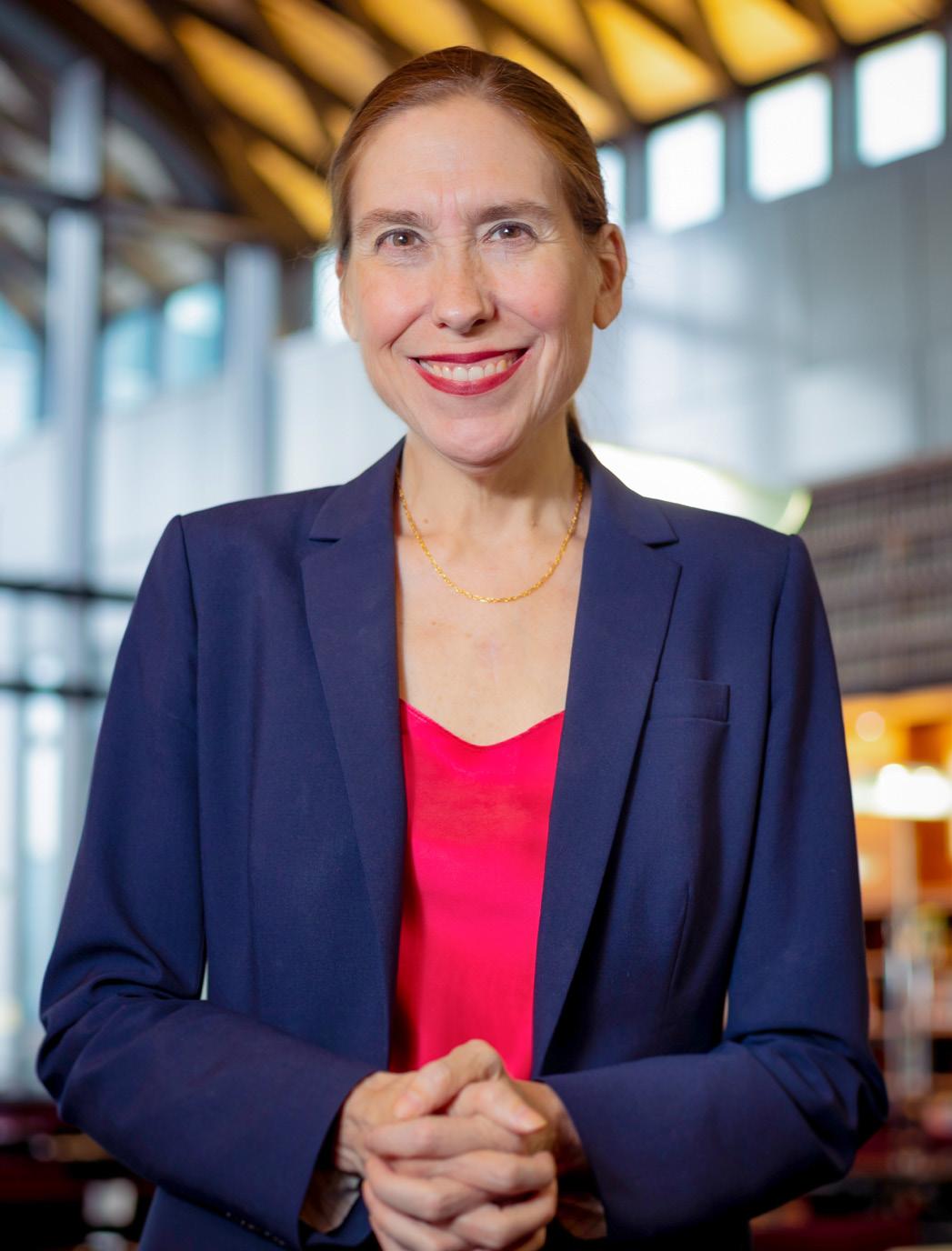
I am pleased to begin this letter with an update on how Chicago-Kent College of Law has handled our muchanticipated return to in-person learning.
The news has been overwhelmingly positive. Because of the dedication of our faculty, sensible mask and vaccine policies, and cooperation from our student body, we have been able to get back to a more personal mode of interaction. I’m proud of the way our community has handled the transition and even more confident that we will be able to address any additional COVID-19-related changes down the road.
As we move forward, I would be remiss if I didn’t mention some of our incredible accomplishments this year: on the trial advocacy front, for the first time in Chicago-Kent’s history, one of our students won the Top Gun National Mock Trial Competition. Zoe Appler ’22 took the title as a secondyear student, no less. Professor Adrian Walters was awarded Illinois Tech’s highest honor for innovation in teaching, the Michael J. Graff Teaching and Advising Innovation Award, for his skill and compassion as an instructor during the COVID-19 pandemic. In all, our students and faculty earned numerous recognitions for their writing, scholarship, and rhetorical talents.
Chicago-Kent will continue to focus on areas of law that offer our students the most promising opportunities while they pursue their passions. Which brings me to the subject of this issue: immigration law.
This practice area has long been a specialty in which our students have had a deep interest, and that has only increased in recent years. In fact, it was student demand that prompted us to start a new Immigration Law Clinic, which—under the stellar leadership of Victoria Carmona— has already earned a reputation as a place where students can learn, practice, and make a real difference.
Our students’ trips to a family detention center in Dilley, Texas, where they have helped hundreds of immigrant mothers and their children, reflects the compassion and ethic of our community. Even with the full workload of a corporate attorney, alumna Samantha Wolfe ’13 volunteers her time to accompany and counsel those who go.
She and others have, in recent months, also focused their efforts on helping families in Afghanistan escape the country after its takeover by the Taliban.
Vivian Khalaf ’91 and Omar Abuzir ’99 have built a practice on helping immigrants from the Middle East; in fact, Khalaf was one of the few, if only, women Muslim attorneys at the time of her graduation to build a community-based practice in Chicago, primarily helping the city’s Palestinian population.
I have come to realize that our ties to a tech university attract a certain type of talent. The future-focused are drawn to us—which was certainly the case with Ben Jackson ’21, who has gone on to build a free online app that has already helped hundreds of immigrants complete complicated Deferred Action for Childhood Arrival applications. Given that the large majority of DACA cases are unrepresented, such innovation is not only impressive; it also promotes equity.
Finally, we highlight the career-long public service of Catherine Paler-Amaya ’03, who has worked for three federal agencies tied to immigration, moving her way up to her current position as senior attorney with United States Customs and Border Protection. Married to an immigrant, she has been on both sides of the process and brings compassion to her deep-seated desire to serve her country.
As you will see in this issue, so many of our alumni/ae are on the forefront of this ever-changing area of law, and Chicago-Kent will continue to prepare students for the challenges that come.
Thank you, once again, for your ongoing commitment to and support of our incredible law school and university.
Anita Krug Dean and Professor16
Samantha Wolfe ’13 has counseled Chicago-Kent students through fear, tears, and harsh realities at a Texas detention center
12 Practices of “a Government Person”
Catherine Paler-Amaya ’03 saw both sides of the law after marrying an immigrant, then working her way through three immigration agencies.
14 An App for Access
Ben Jackson ’21 wants to build a tech route to residency, with fewer lawyers along the way.
16 A Clinic to Control the Chaos Students asked for an immigration clinic. Victoria Carmona gave them more than they hoped.
18 Practicing New Traditions
A groundbreaker and a first-gen law grad have teamed up to fill a void in Chicago’s Arabic community.
CHICAGO-KENT MAGAZINE
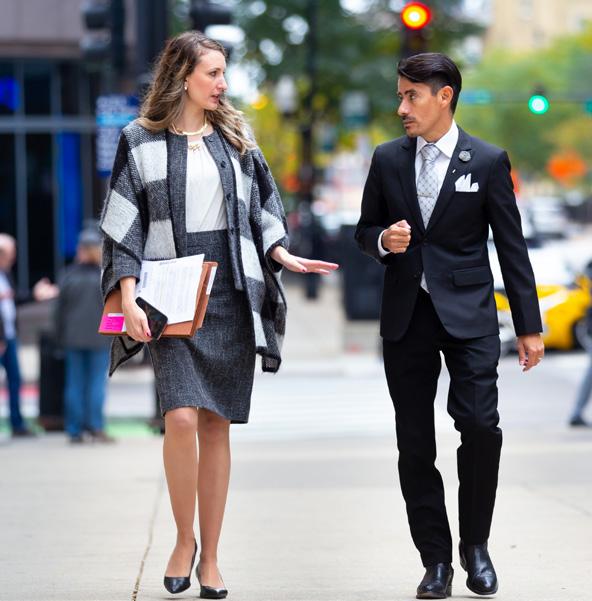
Dean and Professor of Law ANITA K. KRUG
Associate Vice President for Major and Planned Gifts SUSAN M. LEWERS
Senior Director of Constituent Engagement JOSEPH VOLIN
Produced by the Illinois Institute of Technology Office of Marketing and Communications
Content Director CHELSEA KALBERLOH JACKSON

Writer/Editor/Content Manager TAD VEZNER
Contributing Writer KIRAN WEBSTER
Marketing Manager DEIRDRE CRIMMINS
Senior Graphic Designer SCOTT BENBROOK
Photography DAVID ETTINGER, JAY KOEPKE, MIKE REITER
Chicago-Kent Magazine is published by Chicago-Kent College of Law, Illinois Institute of Technology, for its alumni and friends.
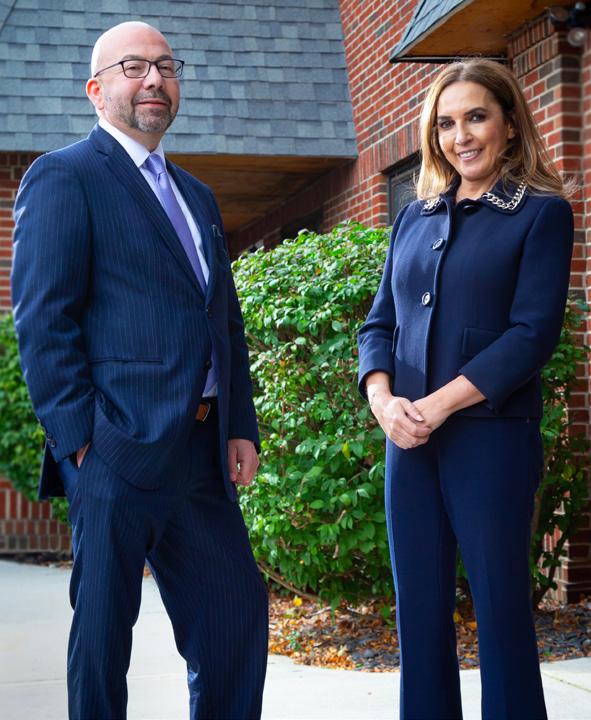
Address correspondence to Chicago-Kent Magazine, 565 West Adams Street, Chicago, Illinois 60661.
Copyright 2021 Chicago-Kent College of Law, Illinois Institute of Technology
18
In recent years, Samantha Wolfe ’13 accompanied ChicagoKent students on trips to the South Texas Family Residential Center in Dilley, Texas, where they counseled women who had been detained at the border by U.S. immigration officials. Students from Chicago-Kent’s Immigration Law Society have organized three trips to the Dilley facility in total. Wolfe is now an immigration attorney at Ogletree Deakins, where she recently worked with families trying to leave Afghanistan.
Enrique Espinoza ’21 was awarded a national Peggy Browning Fund fellowship to work at the Chicago branch of the National Legal Advocacy Network, a nonprofit advocate for low-wage workers’ rights. A longtime hospitality worker, Espinoza says he enrolled in law school in his 40s because he wanted to tackle some of the labor issues he’d observed in his decades on the job. And many of his clients are immigrants, like him: Espinoza arrived in the United States from Mexico in 2007. “The clients’ stories mirror my stories,” Espinoza says.
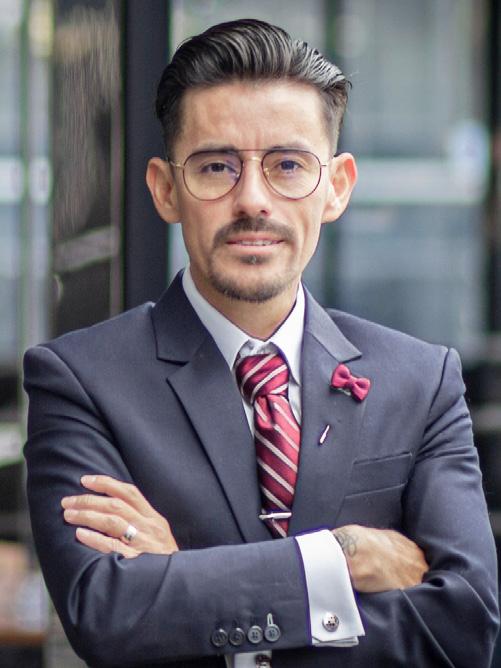
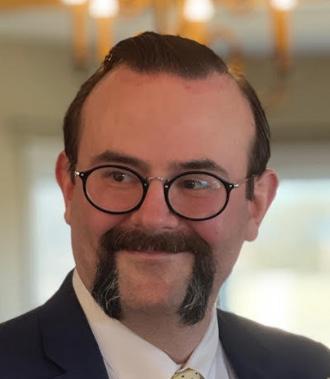
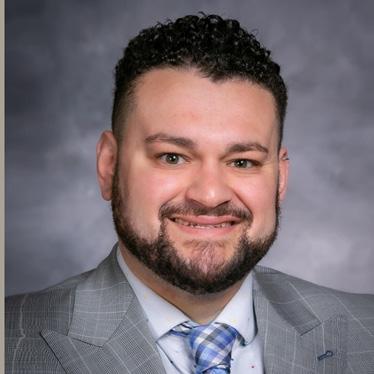
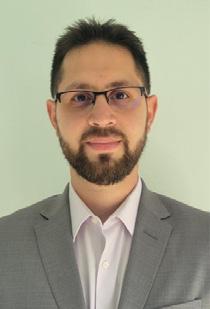
intellectual property courses at Chicago-Kent, hoping to apply it in the agritech field.
Hussein Nofal ’22 received the Gary Laser Professionalism Award for his work in Chicago-Kent’s immigration clinic. The Laser Award goes to students working at the Law Offices of Chicago-Kent’s clinics who show promise and maintain the highest standard of ethics. Nofal, whose family is from Palestine, worked on multiple asylum cases at the immigration clinic, and was singled out for his work ethic and empathy. Noting that many Palestinians are refugees, Nofal says, “You really feel for those people who are refugees from other countries as well.”
Ashley-Marie Sutherland ’23 took the top prize of $30,000 at Pitch@IllinoisTech, a studentrun business plan competition. Sutherland and her husband run HEIRS Farm, a hydroponics startup in Chicago’s Back of the Yards neighborhood on the South Side They say they hope to produce fresh microgreens, including diasporic crops from Africa, to a neighborhood that sorely needs it. Sutherland is focusing on patents and
Hayden Dinges ’21 and Sakshi Jain ’21 were recognized by their Moot Court Honor Society peers with the Marc Grinker Student Commitment Award. The award is given for Moot Court Honor Society members who showed commitment and support to their fellow students. Dinges and Jain were anonymously nominated by their peers to receive the honor. After graduation, Dinges started as an appellate attorney at the Cook County State’s Attorney’s Office, and Jain started as an associate at Ice Miller’s Chicago office.
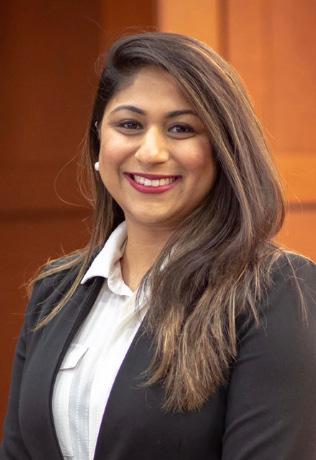
Monica Pechous ’20, Isabella Romano ’21, Clayburn Arnold ’21, and Emily Motin ’22 received the 2021 Fleischman Family Awards for Excellence in Criminal Clinic for their diligent work in Chicago-Kent’s Criminal Law Clinic. The team helped successfully petition for the compassionate release of a man from federal custody in Duluth, Minnesota. The 66-year-old man, who had high blood pressure and 5 ½ years left on his sentence, became concerned by a large COVID-19 outbreak in the surrounding county.

Jaylin D. McClinton ’22 was identified as one this year’s Next Generation Leaders by the American Constitution Society, a progressive nonprofit dedicated to building a diverse legal community in defense of democracy and the United States Constitution. The leadership program singled out 28 law school students in 2021 who “have the requisite skills, knowledge, and talent to act now during this critical moment in our country,” ACS president and former U.S. Senator Russ Feingold said in a written statement. The leadership network now has more than 400 members since it started in 2007.
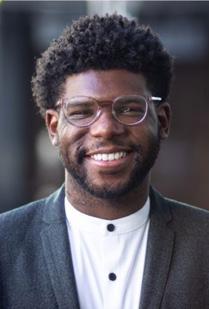
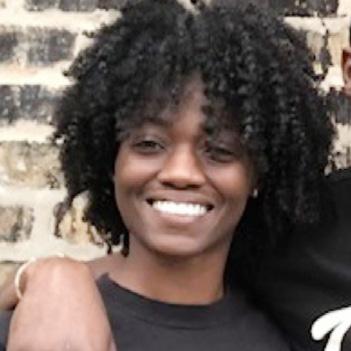
Joey Carrillo ’21 received an Equal Justice Works fellowship to help expand Legal Aid Chicago’s outreach to the LGBT community. Carrillo finished three previous internships with the nonprofit’s Children and Families practice group, and had noticed a dearth of LGBT clients. He will approach outside social service organizations, offering training for those that don’t focus on LGBT clients and asking for referrals from those that do. Equal Justice Works partners with law firms as well as outside funding organizations. Carrillo’s fellowship will be sponsored by the law firm Greenberg Traurig and Discover Financial Services.
Kelby Roth ’22 won the Willis R. Tribler Law Student Writing Competition, sponsored by the Illinois Institute for Continuing Legal Education. She wrote about how a potential increase in COVID19-related civil actions against emergency medical personnel will face a high bar due to state regulation. “Attorneys should take a resourceful
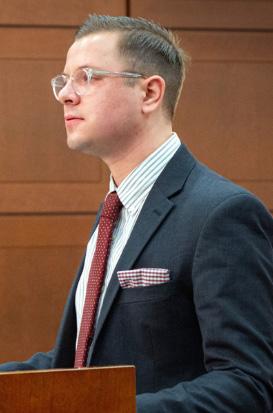
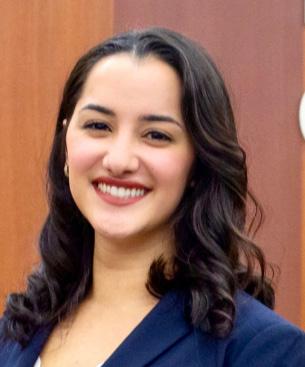
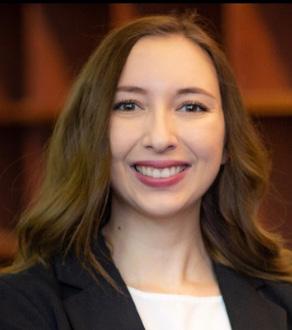
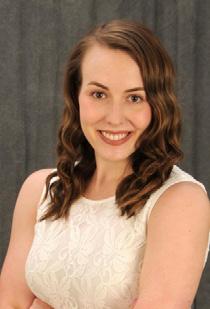
This year at Chicago-Kent College of Law, standout students were recognized with honors, stipends, and fellowships. Here is a look at of some of this year’s most distinguished students:Monica Pechous Isabella Romano Clayburn Arnold Emily Motin
and fact-intensive approach to these suits,” Roth wrote, citing the 1993 Illinois Emergency Medical Services Systems Act, which provides broad immunity from civil liability to emergency medical personnel. “They [attorneys] have a duty to inform their clients of this extremely high bar to recovery—especially because these cases are costly and time consuming, without much success.”
Jennifer Nacht ’21 won the Dolores K. Hanna Trademark Prize for her outstanding performance in a course in the school’s intellectual property program. Nacht also distinguished herself in the annual Saul Lefkowitz Moot Court
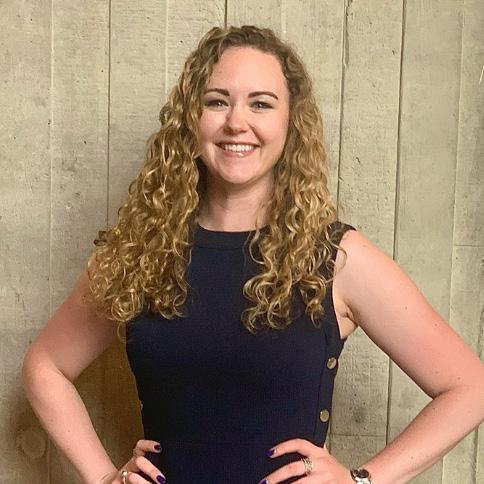
Zoe Appler ’22 became the first student in Chicago-Kent College of Law history to win the Top Gun National Mock Trial Competition. The competition is for the best student advocates in the country: a single student from each of the 16 schools that had scored highest in the team National Trial Competition. Appler was the only second-year student to compete.
She and her backup, Valerie Letko ’21, had just 10 hours to review a 300-page case file and draft an opening statement, evidentiary motions, direct and cross examinations for four witnesses—and, of course, the critical closing argument.
Appler argued against Harvard Law School, Georgetown University Law Center, University of the Pacific McGeorge School of Law, University of California, Berkeley School of Law, and Wake Forest University School of Law in the competition.
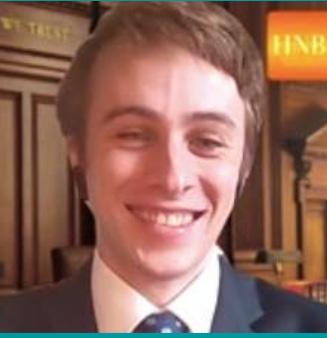
In the final, Appler went up against her old mentor and team captain from her undergraduate years to take the $10,000 prize via a unanimous decision. She was a summer associate this year with Swanson Martin & Bell in Chicago.
Competition—the only moot court competition in the United States with a focus on trademark law—which helped single her out for the prize. She hopes to attain a job in patent litigation.
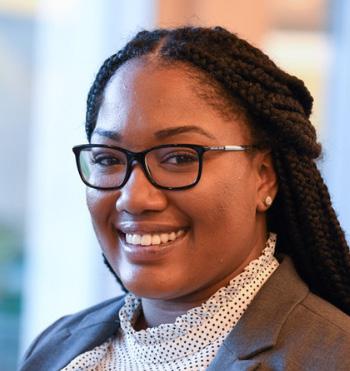
Samantha Buddig ’21 was awarded the Sandra P. Zemm Prize in Labor and Employment Law for an essay describing a union contract negotiation at her family’s long-standing business. Buddig wrote about working on the packaging line while her family was negotiating the company’s next collective bargaining agreement with its local union. “I like to say that I had an ear on both sides of the wall, for I gained a perspective from our unionized employees that sat on the negotiation sessions and, inevitably, from management when I would come home for dinner after my shift,” Buddig wrote. The prize is given to a student who shows commitment to pursuing a career in labor and employment law representing employers, a pioneer spirit, and a gracious and generous attitude toward helping those in need.
Natasha Crespo ’21 attained the first-ever Public Interest Fellowship with Indiana Disability Rights, the state’s agency that enforces disability laws. Crespo, who went
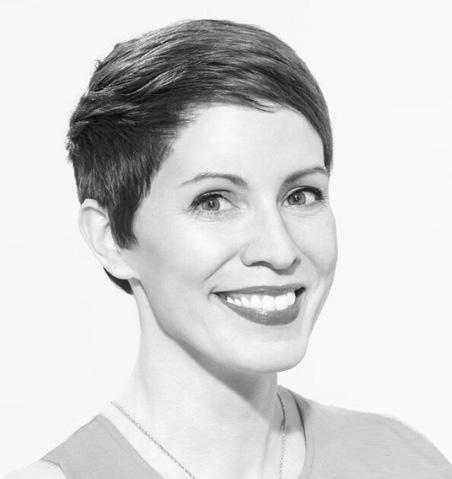
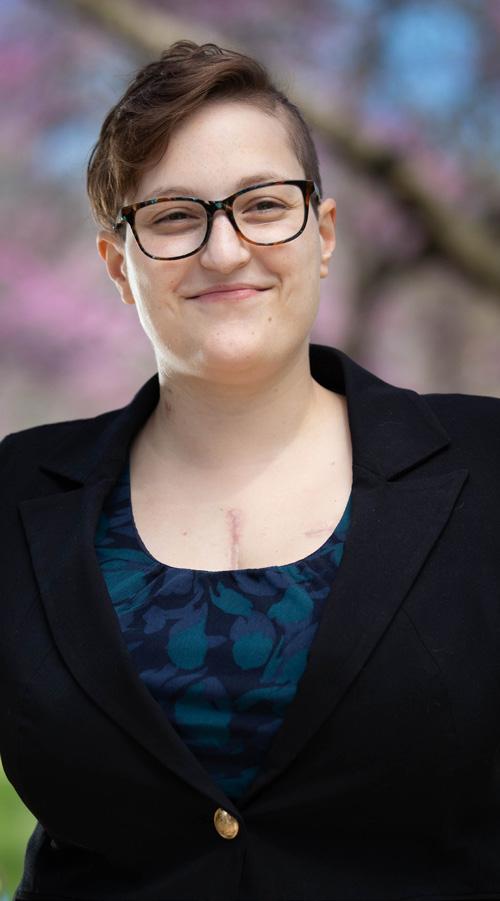
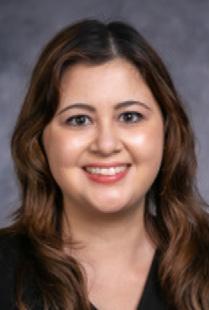
back to school to become a lawyer after observing disability rights violations in her prior career as a librarian, also created and presided over the Disability Advocacy Law Student Association. “After I got that heart valve replacement, I felt I needed to do more with my own abilities. I wanted to be part of the bigger solutions,” Crespo says. She’s open about her heart valve replacement, saying, “I want to be public, because I feel there’s so many law students who have health issues and feel they’re alone, and can’t relate. Or don’t want to tell people,” Crespo says. “They’re not alone. They’re not.”
Lorianna Anderson, Katherine Hanson, and Alex White, all of whom are slated to graduate in 2022, were awarded Stevens Public Interest Fellowships for work with local nonprofits. Hanson’s fellowship was with the Illi-
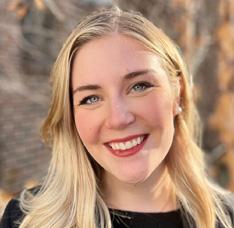
nois Human Rights Commission, assisting administrative law judges and the commission’s general counsel’s office. Anderson’s was with the Cook County State’s Attorney’s Office, where she notes, “Not a lot of people advocating on the defense or the state [attorney’s] side look like me, but a lot of people involved in the court system do. It’s a matter of representation. I think you should have people who are representative of the communities that they serve.” White’s was with the Legal Aid Society, where he worked on family law cases, such as custody disputes and orders of protection, for low-income individuals. The Stevens Fellowships come with an $8,000 prize to help pay for living expenses.
Katherine Hanson ’22 placed highly in a pair of notable writing awards for her paper on how a recent United States Supreme Court case could weaken a peculiar sexual harassment defense made by “equal opportunity harassers.” She was named as the 2021 winner of the Mary Rose Strubbe Labor & Employment Writing Prize and placed second in the Louis Jackson Memorial National Student Writing Competition for her paper, entitled “Conduct, Causation, and Comparators: Revisiting the Defense of the Equal Opportunity Harasser After Bostock.” An equal opportunity sexual harasser describes an employer who, in effect, harasses both men and women at work; the term led to a legal defense that if such an employer harassed people equally, Title VII claims against them would fail. Bostock v. Clayton County, Georgia, expands the definition of discrimination to also include gender identity and orientation; Hanson argued that this standard could be used to broaden plaintiffs’ arguments against “equal opportunity harassers.”
Natasha CrespoMartin H. Malin was appointed as chair of the Federal Labor Relations Authority’s Federal Service Impasses Panel by President Joseph R. Biden. The panel’s members resolve impasses in collective bargaining between federal agencies and unions that represent the agencies’ employees. Malin, who recently retired as director of Chicago-Kent’s Institute for Law and the Workplace, was previously appointed to the Federal Service Impasses Panel under former President Barack Obama in 2009. He was reappointed in 2014 and served until 2017.
—Jamie LooReinforcing the ideal of “equal justice for all,” the Chicago-Kent College of Law’s 2021 Public Interest Awards ceremony celebrated the achievements of dozens of Chicago-Kent students, recognized a long-standing relationship with a Chicago nonprofit, and honored two alumni who have dedicated their careers to helping those in need. The April 26 event’s premier honor, the Ronald W. Staudt Public Interest Partner Award, went to Legal Aid Chicago for the nonprofit’s outstanding contributions to public interest law and its willingness to give Chicago-Kent students experience in the field. Ali Ammoura ’12 and Stephanie Ridella Vittands ’14 received Honorable Abraham Lincoln Marovitz Public Interest Law Awards; and Alexandra Rogers ’21 and Tyler Sprague ’21, co-founders of Chicago-Kent’s Racial Equity and Advocacy Alliance, were honored for outstanding pro bono and community service leadership.

Mandy Lee received the national American Association of Law Libraries’ 2021 Minority Leadership Development Award for her “significant work supporting diversity and inclusion in the workplace and profession,” according to an AALL statement. Lee became chair of the AALL’s Asian American Law Librarians Caucus, where she created two new committees, a social committee and a community service committee. The latter committee hosted a “bystander intervention training” for all AALL members, focused on anti-Asian hate incidents. Lee has gone out of her way to introduce Chicago-Kent students and visiting scholars from foreign countries to Chicago, hosting three Thanksgiving dinners in two years.
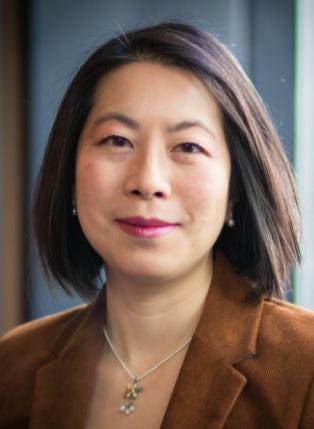
Jean Wenger, the director of the Chicago-Kent Law Library, was awarded the 2021 Agnes and Harvey Reid Award for Outstanding Contribution to Law Librarianship by the Chicago Association of Law Libraries in May. The organization consists of approximately 200 law librarians who work within Chicago-area law schools, law firms, corporations, courts, and other government entities; the Reid Award is its highest annual honor, given to a single librarian who shows remarkable dedication to the profession.
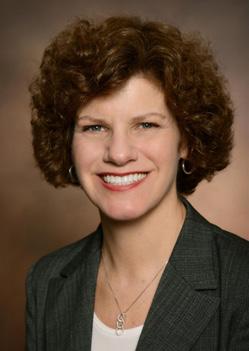
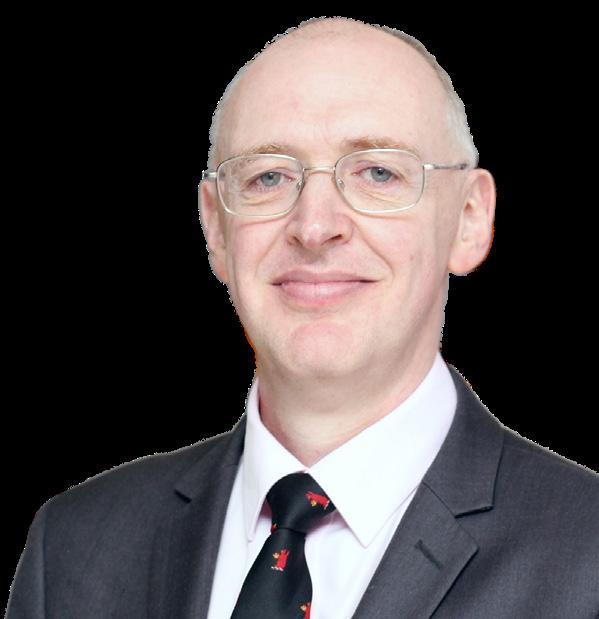
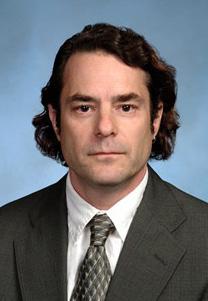
Jonathan Decatorsmith has been appointed as the Chicago-Kent’s clinical education director, putting him in charge of the C-K Law Group and its 11 individual practices. Decatorsmith, who has been interim director since Clinical Professor Richard Gonzalez stepped down in September 2020, has run the tax practice of the C-K Law Group since he was hired by founder Gary Laser in 2000.
Thomas Crocker, the N. Heyward Clarkson Jr. Professor at the University of South Carolina School of Law, won the 2020 Chicago-Kent College of Law

Roy C. Palmer Civil Liberties Prize for his book, Overcoming Necessity: Emergency, Constraint, and the Meanings of American Constitutionalism, published by Yale University Press in July 2020. The book explored the conflict between liberty and “necessity” in times of national emergency, specifically when a United States president’s rhetoric works to erode constitutional protections.
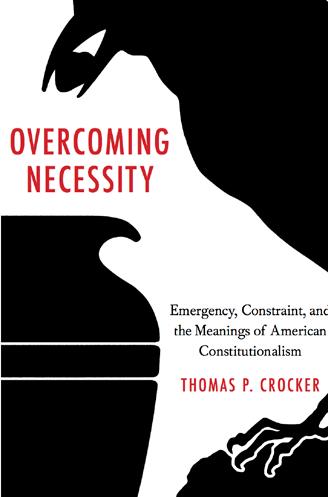
Chicago-Kent Professor Adrian
Walters was awarded Illinois Institute of Technology’s 2021 Michael J. Graff Teaching and Advising Innovation Award in April. The award, meant to encourage teaching practices “designed to improve student learning and success,” is handed out annually to a professor who displays notable innovation.
During the height of the COVID-19 pandemic, Walters researched and familiarized himself with various instructional technologies and online teaching techniques, and shared his experiences with fellow faculty, as well as the college’s Tech Team members.
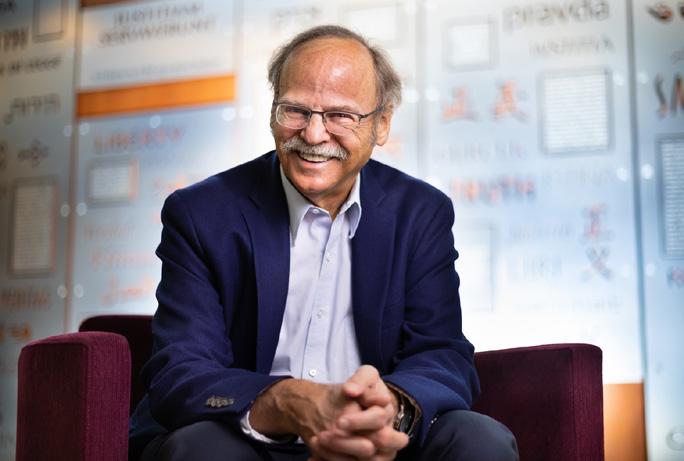
Chicago-Kent Associate Professor and Associate Dean Alexander Boni-Saenz’s paper “Legal Age” will be published in the Boston College Law Review in spring 2022
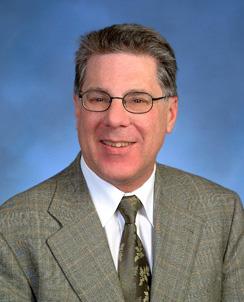
The paper explores several ways the law could measure one’s age, and the virtues and vices of each. It centers on the existing “chronological” (year-counting) standard as a touchstone to measure other models— including the “biological model” relating to health, and “subjective model,” relating to how one feels—in order to apply greater scrutiny to current legislation.
Chicago-Kent Assistant Professor Noah SmithDrelich’s paper “The Constitutional Right to Travel Under Quarantine” was accepted for publication in the fall 2021 edition of the Southern California Law Review The paper explores how an underutilized tenet of the Constitution—the right to travel—could provide a more fruitful basis for scrutinizing quarantine regulations. Smith-Drelich does not argue that such quarantines aren’t important, or that they are unconstitutional, simply that they should be subject to a more stringent form of judicial review. The paper lists historical instances when quarantines led to overreach, particularly against minorities and the disenfranchised.
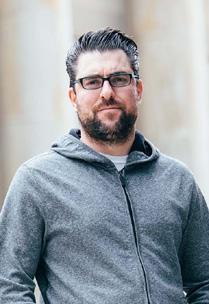
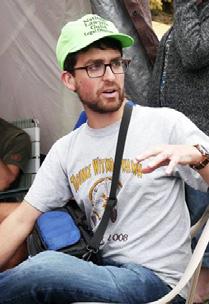
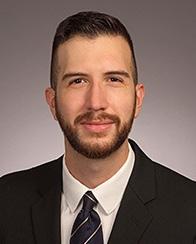
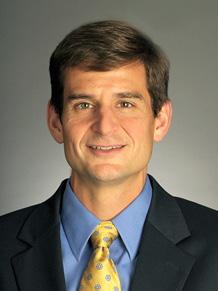
Daniel Katz, director of The Law Lab at Chicago-Kent, is part of a large international research project that studies the quantifiable growth—in actual words, and how those words connect to and reference each other—of law. The latest paper, “Measuring Law Over Time: A Network Analytical Framework with an Application to Statutes and Regulations in the United States and Germany,” was published in Frontiers in Physics in May 2021. One sample finding: from 1994 to 2018, the total word count of federal statutes in the U.S. grew from 14 million words to 21.2 million words, a 51 percent increase. The effect of that growth, Katz says, will be that for the average person to comply with this ever-growing mass of laws and regulations—in terms of accessibility, starting and running a business, and even adhering to criminal statutes—they’ll need a lot more lawyers to help them understand
it. “There should be some thought to ways to construct laws and regulations over time, including sunset clauses. We just can’t keep doing things the same way,” Katz says.
Chicago-Kent Professor Christopher Schmidt’s recently published book, Civil Rights in America: A History, explores the shifting meaning of the term “civil rights.” The book, published in December by Cambridge University Press, is different from the numerous books written on the history of civil rights. Rather than assuming a fixed definition, it delves into how the term itself has changed, and why. From the National Association for the Advancement of Colored People to Black Lives Matter to the National Rifle Association—and even former President Richard M. Nixon—many organizations and individuals have claimed to champion civil rights. Schmidt explores the term’s various meanings, evolutions, and iterations that have served as the basis of these claims.

In his new book about the “pervasive investigative gaze” of increasingly ubiquitous surveillance in the modern world, Chicago-Kent Professor Richard Warner explores how it happened, what its effect is on the average person, and what can be done about it. The Privacy Fix: How to Preserve Privacy in the Onslaught of Surveillance, published by Cambridge University Press in October 2020, suggests that heavy-handed surveillance denies a person’s ability to explore different avenues of personal development, via the ever-present specter of being watched by unknown parties with unknown motivations. He and his co-author, Robert H. Sloan, head of the University of Illinois Chicago Department of Computer Science, believe the privacy protections of the mid-twentieth century have broken down, and point to regulation as a remedy. “We turn to regulation because we assume market solutions are unlikely,” the authors state. “Consumers lack sufficient power and information.”
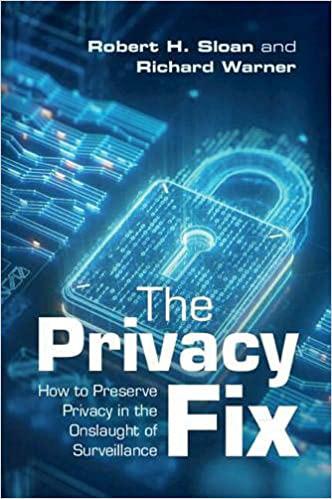
In its effort to teach teenagers constructive discussion about contentious topics, the Chicago-Kent College of Law’s Constitutional Democracy Project hosted a youth summit on “defunding the police,” putting social justice advocates on a panel alongside the president of the Illinois Association of Chiefs of Police.
The Constitutional Democracy Project’s 2021 Illinois Youth Summit brought approximately 120 students from 10 Chicagoarea schools together over Zoom to watch panelists discuss the varied meanings of “defunding the police” and to ask questions on trending law enforcement topics, such as qualified immunity, no-knock warrants, and body cameras.
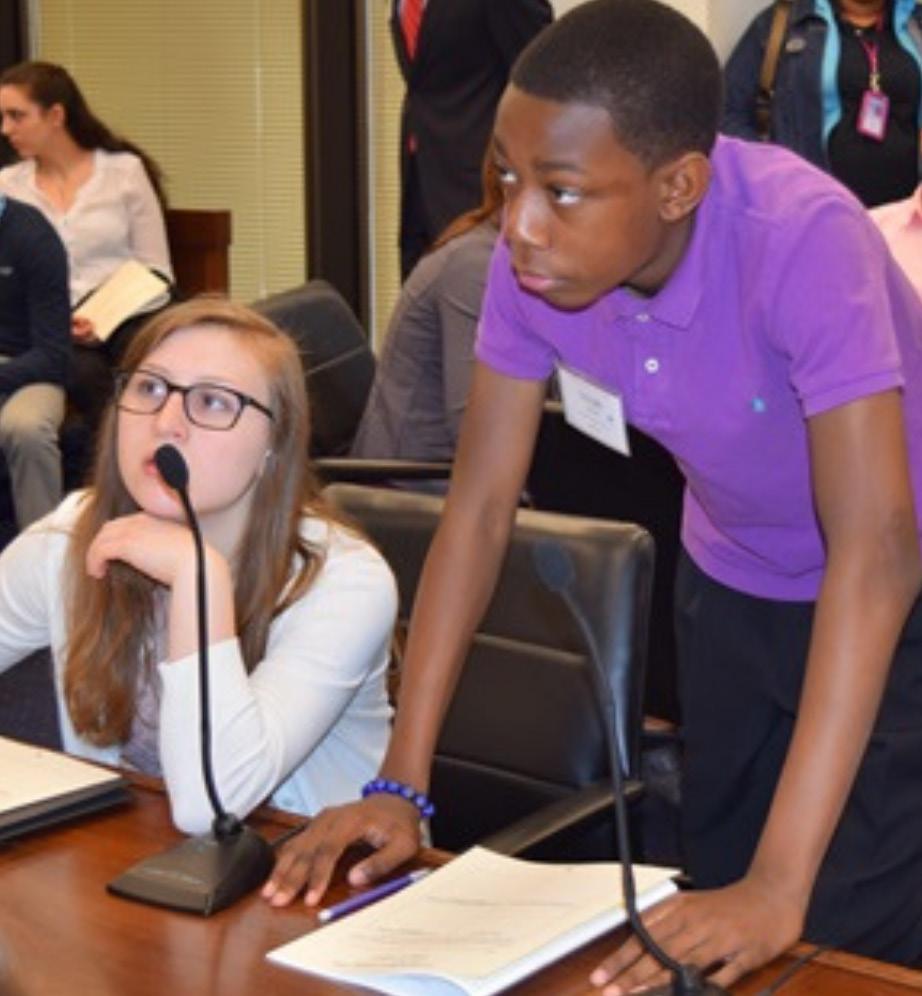
When it comes to legal fields that are constantly in a state of flux, few can match the ever-changing landscape of immigration law. Political contention has led to dozens of changes to federal policy over the past decade, heavily impacting a client base that seems only to be growing. Intense student demand for the specialization at Chicago-Kent has led to opportunities like the renewal of our Immigration Law Clinic and pro bono trips to the Texas border. But even alumni with decades of experience share with Chicago-Kent Magazine how that they are always having to reeducate themselves, and prepare for the unexpected.
amantha Wolfe’s first trip to Dilley, Texas, was a tear-filled eye-opener. She traveled to the South Texas Family Residential Center, about 60 miles from the Mexican border, to hear more “credible fear” than she could possibly prepare for.
That legal standard—needed for the United States Citizenship and Immigration Services to grant asylum— wasn’t hard to meet, she soon found. Roughly “98 to 99 percent” of the fear Wolfe ’13 heard from the women and children at the center, she says, was credible enough to allow them to stay.
It was also credible enough to be traumatizing to those, like Wolfe, who were told about it. Many of the families had fled gang violence—single mothers who were extorted or raped, or had their kids targeted, either for sexual assault or gang initiation.


You have these ideas that you’re going to help people, and they tell you the worst things that happened in their life. The women didn’t care about themselves; they cared about their children,” says Wolfe, who did the work pro bono on her time off from her corporate job. “The secondary trauma…it’s really hard, grueling work, helping these women.”
Still, when she talked to students at Chicago-Kent College of Law about the experience nearly a year later, they didn’t shy away.
Instead, about a dozen of them volunteered to spend their spring break at the center, doing what Wolfe did. The following year, even more volunteered to return, meeting with more than 200 clients per trip. Wolfe accompanied them both times pro bono, the only licensed attorney of the bunch, serving as a mixture of consultant, counselor, and therapist, whatever was needed.
“These stories keep me up at night, still,” says Melissa Ortega ’19, who went on both trips in 2018 and 2019, and also served as a translator. “I know with Sam, we cried every night. It was tough. She had no duty to go and she still went. Being an attorney, I know how busy she was, and how hard it was for her to get away.”
Adds Ortega, “I am a daughter of immigrants; my parents immigrated from Mexico. For a lot of us, our parents were immigrants but they didn’t go through what the [clients] did.
“So there was this feeling, that could’ve been us. It did hit close to home....What I took away is an immense appreciation for the life I have now.”
Becca Spira ’19, who along with Joanna Martin ’19 helped organize both trips as co-chairs of Chicago-Kent’s Immigration Law Society (ILS), notes that the college stepped up its support the second time around. After Tatiana Alonso ’20, who had attended the trip in 2018, spoke to Chicago-Kent’s Board of Advisors, each board member personally pledged $1,000 to fund a return in 2019.
“They immediately emailed, saying ‘You’ve got the money,’ ” Alonso says. It was enough to cover flights, food, and hotel stays for the nearly dozen students who went. Students went again in January 2020, right before COVID-19 halted future trips.
“I don’t think a single one of us really understood what level of second-hand trauma we were going to experience,” adds Alonso, whose parents also immigrated from Mexico. “I’m glad we did it, and I’d do it again in a heartbeat. It meant a lot to be able to give back.”
In November the ILS spoke and presented a documentary of its members’ experiences at a conference on student activism hosted by the Illinois Holocaust Museum. The school also created the Dilley Practicum after a push by Professor Felice Batlan, allowing the students to earn two credits for their efforts.
“We saw the extraordinary work that needed to be done, and the students were transformed by the experience,” Batlan says. “The class really explored the background of what was happening in the countries where people were coming from, and what was happening to the women in these countries.
Students kept diaries and wrote position papers as a way to address the secondary trauma as well as a way to address the larger historical context.”
Wolfe’s day job is a little less harrowing—as an associate at Ogletree Deakins’ Denver office, she works with companies trying to shift their global workforce. “Global mobility,” it’s called.
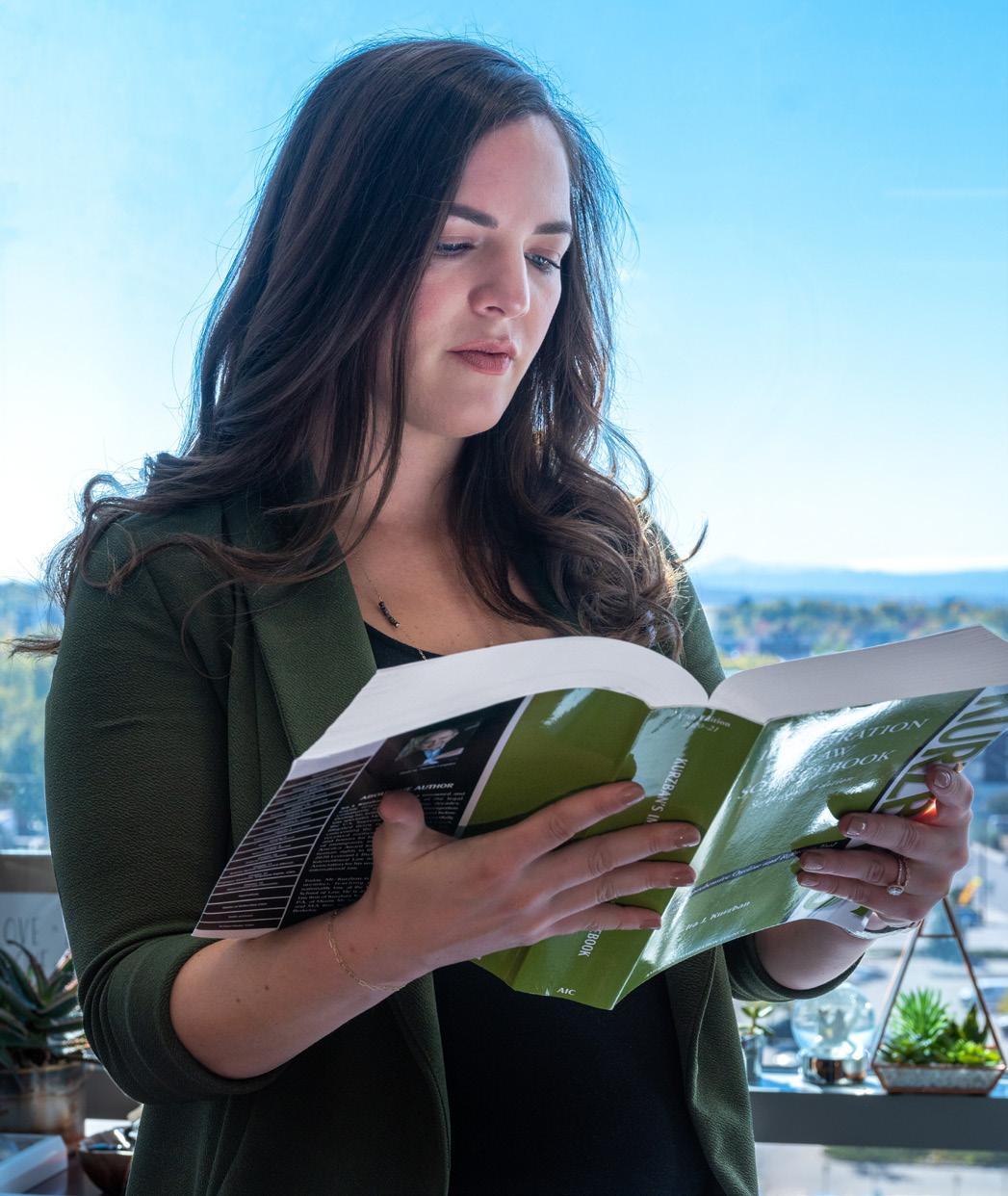
Still, in recent months, the crisis management skills she honed in Dilley have helped her with that work as well. Wolfe has been tasked with trying to get clients’ families out of Afghanistan, specifically those working for U.S. companies that had operated under the old regime.
In the week after the U.S. withdrawal from the country in August 2021, Wolfe related how one of her client families has a two-month-old baby girl. Another includes four daughters. The parents—translators or point-persons for financial institutions—are fearful of their children being raised in a country run by the Taliban, which has been traditionally opposed to women receiving an education, among other numerous gender disparities.
“We’re hearing reports of people who go to the airport and see people shot right in front of them,” Wolfe said during the August evacuations. “It’s just absolute chaos. Even if we’re able to contact them…even sending that information, you could be sending someone out to their death. It’s a really high-stress situation right now.”
Both at home and from her office, which is decorated with keepsakes from trips she’s taken and people she’s met or helped, Wolfe tries at first to get people approved by the U.S. government, then to arrange for families to reach U.S. embassies in adjacent countries, since the one in Kabul, Afghanistan, closed. She communicates with them through back channels, gets them passwords for buses, and teaches them how to wipe their phones in case they run into a Taliban checkpoint, where their devices might be confiscated.
And as far as entering the U.S., from the Department of Homeland Security to the State Department, “It’s a process that involves collaboration with multiple government agencies. And it’s a very complicated process,” says Marissa Cwik, another attorney at Ogletree who works on the parole cases with Wolfe.
The cases were still pending at the time of Chicago-Kent Magazine’s publication.
“She’s in the thick of this stuff, working way above and beyond what would normally be expected. All weekend, she was texting with these folks and trying to do what she could,” says John Combs, a shareholder at the firm who works closely with Wolfe and has been an immigration attorney for 25 years. “She’s honestly one of my favorite people I’ve worked with in my entire career. She has an incredible passion for service.”
But Wolfe is quick to note she isn’t doing it alone.
“The awesome thing about immigration attorneys is that we really do collaborate with each other. There’s so much camaraderie,” Wolfe says.
Every week, Wolfe scours multiple listservs, including one specifically about Afghan evacuees. Over the initial weekend following the withdrawal of U.S. forces, she received 200 emails from that listserv alone.
“We’re just going blind. There are changes at the drop of a hat,” she said at the time. “But immigration law, since the day I started, has been at the forefront of all these crazy issues.”
Born and raised in Tinley Park, Illinois, Wolfe received a bachelor’s degree in Spanish from the University of Illinois at Urbana-Champaign and taught English in Spain for a year before coming to Chicago-Kent.
Upon graduation, she initially worked at a couple of smaller Chicago immigration firms, Global Immigration Associates and R.C. Immigration, before changes to federal immigration policy under the Trump Administration motivated her to do pro bono work at Chicago’s O’Hare International Airport, trying to help Muslim immigrants halted there by a federal travel ban.
She expanded her volunteer efforts by taking her first trip on her own to Dilley in 2016. While there, another volunteer she befriended encouraged her to apply at Ogletree.
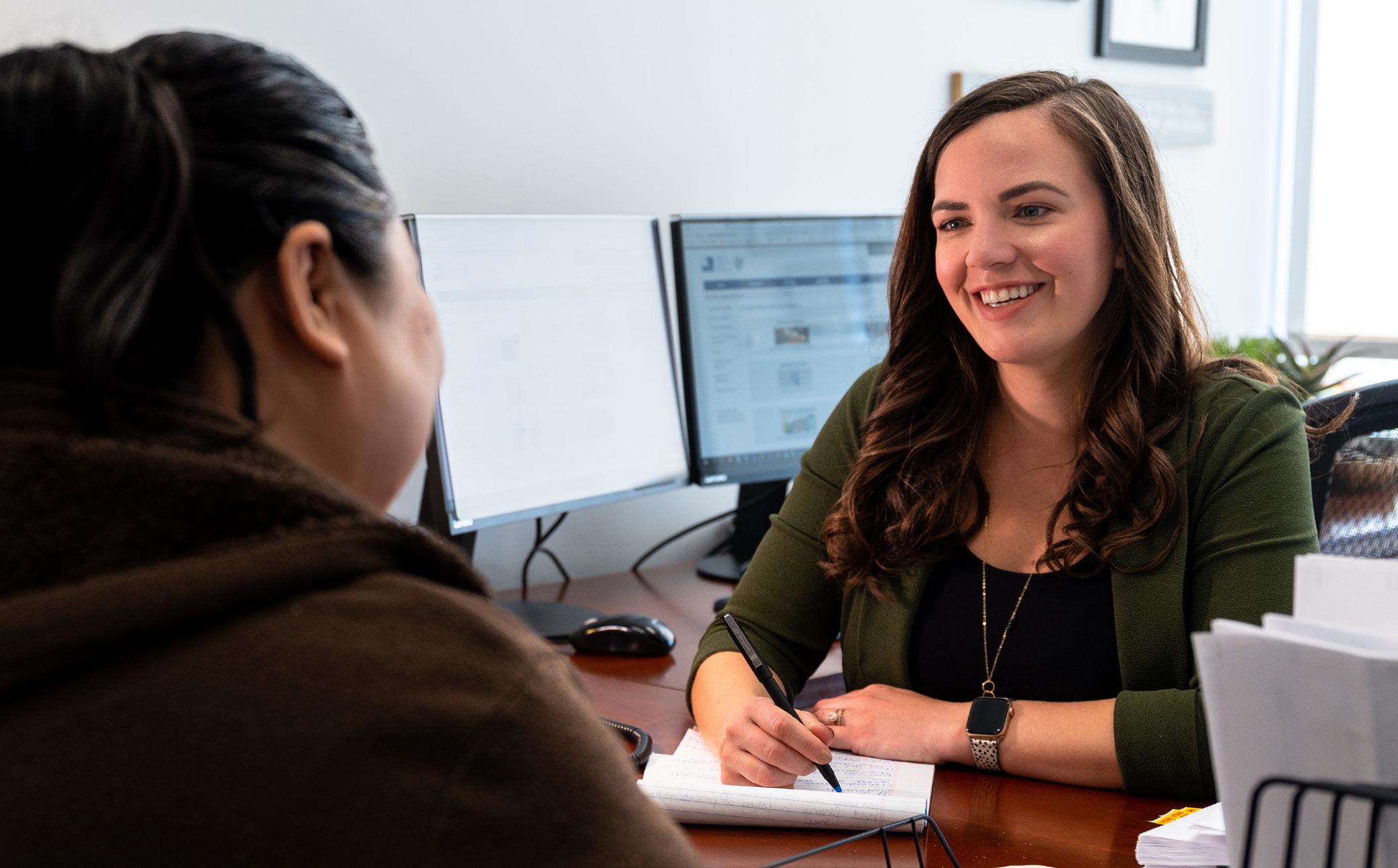
On top of the Afghanistan cases, adds Cwik, “Sam is really a leader in the pro-bono movement at Ogletree. She’s taken pro bono cases and made herself available as a resource.…Having a co-worker with that energy can really change for the better how people approach problems. When Sam talks to you, you really feel like she’s present in that conversation.”
When Wolfe finally talks about the typical responsibilities of her day job, though, she notes it’s nice to take a breather from cases where lives could be on the line.
“I always recommend this type of law if anybody will listen. It’s so rewarding; it’s not contentious or adversarial. You’re just fighting the government, which to me doesn’t seem contentious,” she says. “It keeps growing every single year, just the need and demand from companies. And we do get the opportunities to do the pro bono stuff in our free time. It’s a sweet spot, the pro-bono stuff can really impact you emotionally.”
“Still, people only want to hear about the pro bono stuff,” Wolfe laughs. And as far as another Dilley trip, she adds, “I’m absolutely open to doing it again.”
“We’re just going blind. There are changes at the drop of a hat. But immigration law, since the day I started, has been at the forefront of all these crazy issues.”
—Samantha Wolfe
When Catherine Paler-Amaya ’03 refers to herself as “a government person,” she’s speaking from experience. A lot more experience than most.
Throughout her career she has worked for three federal organizations tied to immigration: the former United States Immigration and Naturalization Service (INS), U.S. Immigration and Customs Enforcement, and U.S. Customs and Border Protection (CBP). That’s not even counting her brief internship with the U.S. Department of Justice’s Executive Office for Immigration Review.
As a result, she jokes that even her family doesn’t really know what she does, or what agency she works for—even though she’s done it for more than two decades and is married to an immigrant.
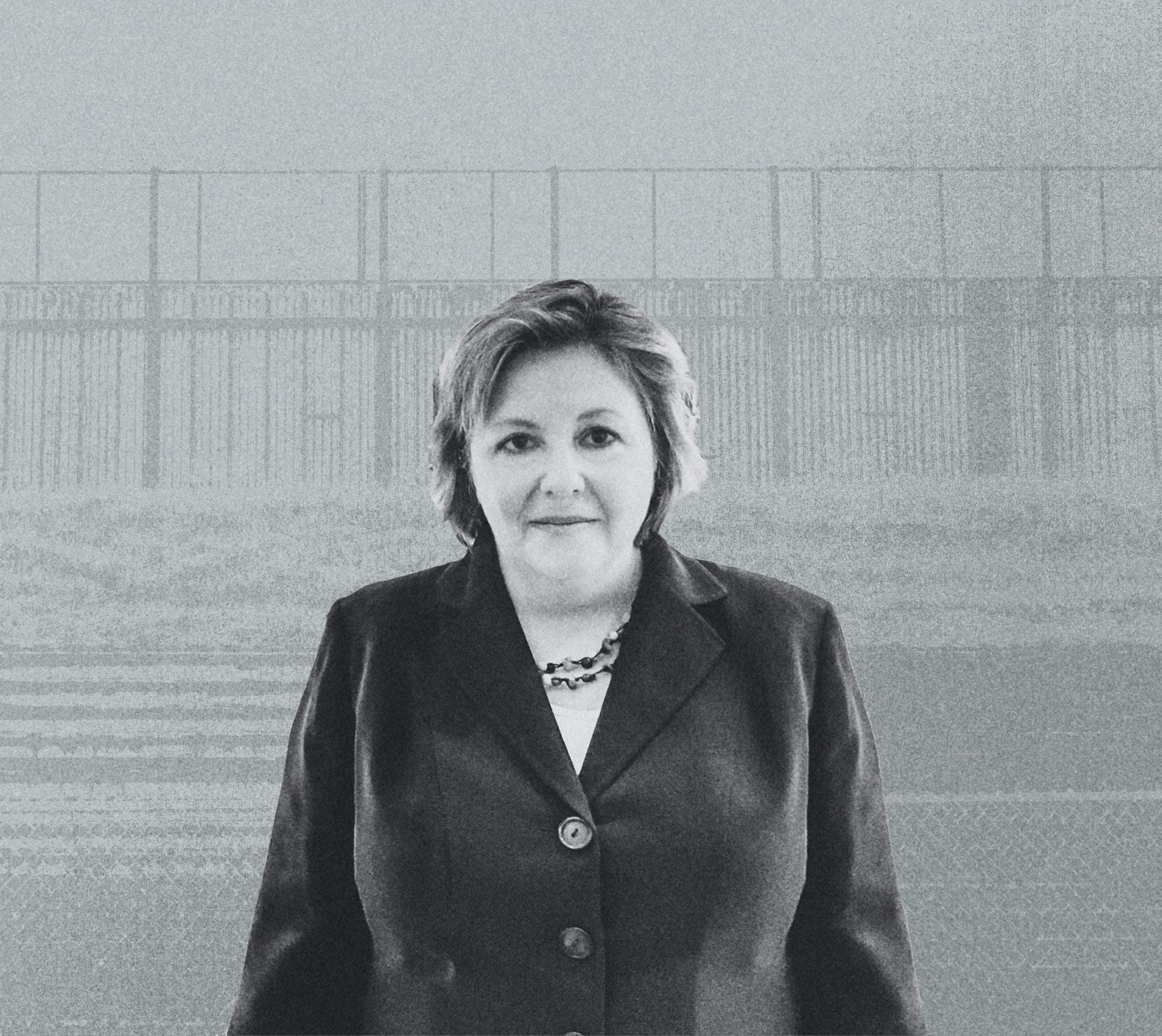
“My career is unique even for a government person….I’ve been through the immigration process personally with my husband, I have worked in the private sector in the employment immigration area, and I have worked on the adjudications and enforcement side with the government. I know and understand the challenges from all angles,” she says.
“We all come to this job for different reasons, but the immigration aspect is something that is personal. My father was an immigrant, and for Catherine it’s personal too, because she went through the process with her husband,” says Jennifer Veloz, a senior attorney with CBP who has known Paler-Amaya for 15 years.
adjuciations position; officers in the field recommended fines against airline carriers who had allowed foreign nationals on their flights without proper travel documentation. She made sure the fines were appropriate.
But the job required some interesting training.
“I remember thinking, ‘I can’t believe I’m doing this. Immigration inspectors have to learn to drive like this?’” PalerAmaya says. “We had to drive 60 milles per hour, and then the instructor would activate a remote control that would lock the brakes to put the car into a spin. I have vivid memories of getting out of those spins.”
But she craved variety. “I started to contemplate where I wanted my career to go. Some work was repetitive and confining to me. In corporate work you get into one area and often stay in that area because you become valuable as a specialist,” she says.
So when a job opened up working for CBP—even though it was in Florida—she took it.
She’d wanted variety, and she got it working as a senior attorney for the Office of the Associate Chief Counsel, first in Miami, then Tampa, Florida.
“I had all this lived experience with all these areas of immigration, but the CBP attorney position was intriguing to me because it also dealt with trade issues, seized artifacts, currency seizures, Fourth Amendment issues with officers and agents, and lots of employment issues,” she says.
“She brings a uniquely personal and human experience. This isn’t stamping widgets; each case is a person, each case is a family, and you want to do the right thing,” Veloz adds. “Catherine is just so ethical, and her heart’s in the right place. It’s so obvious in the way she comports herself. She’s measured, she’s patient, and she cares.”
But like many careers, Paler-Amaya’s current path wasn’t the one she originally envisioned.
After earning her master’s degree in Latin American Studies from George Washington University’s Elliott School of International Affairs in Washington, D.C., she wanted to enter the U.S. Foreign Service. A federal hiring freeze nixed that idea. Still, she needed to find something related to her education and interests.
So she got a temporary job working for the former INS, reviewing appeals of those who had applied for status through the Special Agricultural Worker program.
“I came in idealistic, but it was a sobering experience. In the appellate unit, we saw quite a bit of fraud,” Paler-Amaya says.
Workers wanting residency had to show they’d been employed with farmers for a certain number of days. But sometimes those farmers weren’t really farmers, and some had been paid to provide false work documentation for applicants, Paler-Amaya says.
Wanting a permanent position, PalerAmaya applied for an immigration fines officer position, and she got it. It was an
She’s referring to the driving course she had to take during her three months at the Federal Law Enforcement Training Center in Georgia in order to qualify for her position. Sure, she took weeks of immigration Law courses, but when you tacked on the firearms training and self-defense courses, it all made PalerAmaya wonder how dangerous her fines officer job would actually be.
In the end, she never had to pull herself out of a high-speed spin outside of training. But the experience proved valuable.
After being promoted and working for several years at INS’s Washington, D.C., headquarters as an assistant chief inspector, she yearned to return home to the Midwest, where she grew up. Though she was born and raised in a Detroit suburb, she needed a big city. And she wanted to go to law school.
“I felt that I wanted to make a larger impact on my community and expand my abilities and career. I felt that being a lawyer would help me do that,” PalerAmaya says. “I believe it has, especially as I refocused my career in the public sector.”
She started at Michigan State University College of Law, then transferred to Chicago-Kent. As a 30-something attending school in the evening, she worked by day as a legal assistant in Sidley Austin LLP’s immigration department. After she graduated in 2003, the firm hired her on as a staff attorney in the same department where she advocated and did benefits work on behalf of foreign nationals.
In effect, Paler-Amaya became a jack of all trades. In the same day she could be providing immigration advice about a traveler to CBP officers at Orlando International Airport, discussing trademark violations in a shipment of auto parts at the Jacksonville, Florida, seaport, and be working on discovery in an equal employment opportunity discrimination case.
“The agency doesn't pigeonhole any of us in the field, which is what I really like. Though I like immigration a lot, I also like having a variety of other work, which I think has made me a well-rounded lawyer,” she says.
Still, she has become the go-to person in her office for immigration projects, and is particularly good at researching complex federal statutes and case law.
When asked what it is about the work she likes, aside from the variety, she says, “I like being a public servant, and I like the mission of serving my government. I feel that I’m contributing to my country. And I don’t have to write down billable hours.”
She then talks again of her husband, whom she met through a friend while working for INS in Washington, D.C. He became a U.S. citizen after they moved to Miami.
“Many of us in the immigration-related agencies, including myself, are married to people from other countries. I respect the diversity of our country. And we need to have good people in our government who understand that and who bring their unique experiences and backgrounds to the work,” she says.
“The laws are made by others, and we have to enforce them. We need smart, dedicated and creative lawyers to do this work.”
“I felt that I wanted to make a larger impact on my community and expand my abilities and career. I felt that being a lawyer would help me do that”
— Catherine Paler-Amaya
Ben Jackson went to law school to reduce the need for lawyers.
“The law really belongs to ordinary people. A lot of times by having lawyers in the process, we make it far less accessible than it could be,” Jackson ’21 says.
That’s the principle behind Jackson’s project, Immigrationhelp.org, an online app that helps immigrants fill out complex immigration paperwork for free. So far, in the beta stage, the company’s clients have successfully filled out 250 applications; the site now commands 160,000 unique site visitors per month, and numbers have been growing at an average of 43 percent per month for the past 12 months.
The massive immigration market in the United States is hardly a secret. But what’s less widely known is the fact that 63 percent of the millions of immigration applications filed every year are unrepresented, according to the American Immigration Council.
“He has a real passion for it,” says Fernando Urbina, the company’s director of outreach. “I know he has had a number of friends who had to go through this difficult process and had to pay very high fees.”
Jackson first attended Chicago-Kent College of Law in 2017, after losing his startup company to a competitor during a drawn-out legal battle.
“That kind of ignited a passion in me for figuring out the law for ordinary people, because it hadn’t worked for me,” Jackson says. “I decided to go to law school to figure out ways for people like me to protect themselves.”
While attending the financial technology (fintech) summit in his first semester, he met entrepreneur Jonathan Petts. The two talked about Petts’s project, Upsolve, an online application that allows people to file Chapter 7 bankruptcy petitions on their own, for free.
“In certain practice areas, the reason you’re in it is you don’t have money. And yet you need money for an attorney,” Jackson says.
Jackson came on board as an intern and taught himself some tech skills. He learned process automation: taking all the manual work and automating it with things like text templates, anything that would reduce the workflow. The gig lasted through 2018, and Jackson continued on at Chicago-Kent.
But then Petts returned with another idea: something exciting enough to Jackson to get him to drop out of Chicago-Kent for a year and move to Boston, where the team was located.
It was a rough idea in the immigration space: something like Upsolve, but for immigration documents such as green card and citizenship applications.
Like bankruptcy applications, immigration work was seen as far too expensive; any rate was high when you had a client base with very little money.
They first imagined the app as a paid service: an in-house, mid-market law firm with a stable of about 100 attorneys that would do a lot less work, for a lot less money. The consumers, using the app, would do about 80 percent of the work.
But they increasingly saw that model as flawed.
“The process of managing an outsourced law firm was too onerous,” Jackson says. “We also realized the need in this space, who would benefit, was so much higher than we thought. And the ability to pay was so much lower than we expected. The margins weren’t there.”
So they ditched the firm idea and instead made the app entirely free.
In November 2019 they switched over to nonprofit status. And Jackson realized that, in order to increase the trust of potential donors, he—as the company’s chief technology officer and co-founder—should probably get a J.D.
“I eventually realized that the thing that makes or breaks effective service delivery was trust,” Jackson says.
So he returned to Chicago-Kent and earned a legal innovation and technology certificate from the school’s Law Lab; he was also awarded an Access to Justice Tech Fellowship and an Equal Justice Foundation Fellowship. He jokingly credits COVID-19 for making it possible: he attended remotely while still working full-time in Boston.
The company has since gained many individual donors, along with bigger ones such as Harvard University, Google.org, and Fast Forward, a nonprofit tech accelerator.
They’ve achieved high growth for months, and their online Trustpilot reviews are overwhelmingly complimentary. Due to demand, they’ve switched primarily to Deferred Action for Childhood Arrivals (DACA) applications, and users have found them through Google search.
“One of the things we learned at Upsolve is that nonprofits have an unfair advantage in winning the search,” Jackson says. “You can get links from organizations that legally can’t or won’t link to for-profit organizations.”
“We do believe there is a role lawyers play. End-to-end and last-mile supportive hand-holding, and consumers want that,” Jackson says of their referral service. “The attorneys like it: they’re being hired for something immigrants have asked for, rather than having to figure out what they [clients] want.”
But he’s certain, when it comes to immigration, they want something affordable, which may not always include attorneys.
“I didn’t want to be the filter anymore,” Jackson says. “I wanted to be the conduit.”
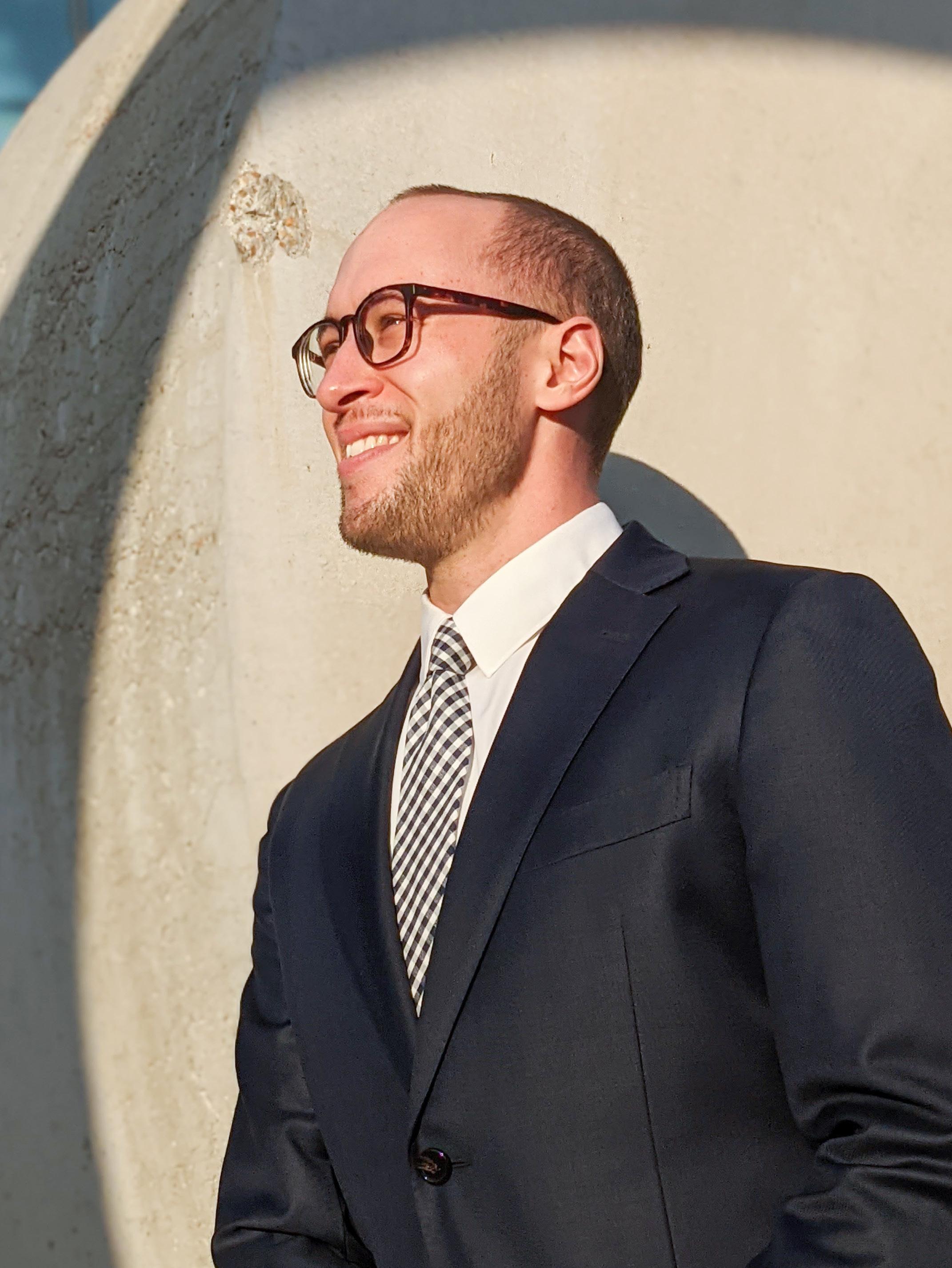
To be an immigration attorney is to grow accustomed to change. At times, dramatic, radical change; at times slow, thousand-paper-cuts change. Every week, adding up to about 1,000 alterations to federal law over the past four years. And in a field renowned for its clogged court dockets, every change has an impact.
“I don’t know what it’s like to practice in an area that’s not constant chaos. It’s all I eat, sleep, and breath,” says Victoria Carmona, head of Chicago-Kent College of Law’s Immigration Law Clinic. “But it’s a controlled chaos. Sometimes it’s just trying to do the best you can. And with students, you can’t let them get completely overwhelmed.”
But she doesn’t let them stand aside either. Every semester, Carmona brings eight students into her clinic and gives them heavy responsibilities: from interviewing and prepping clients to occasionally arguing before a judge.
Though Carmona has only been heading the clinic since 2019, she’s already made a name for herself—even with students who had little initial interest in the field.
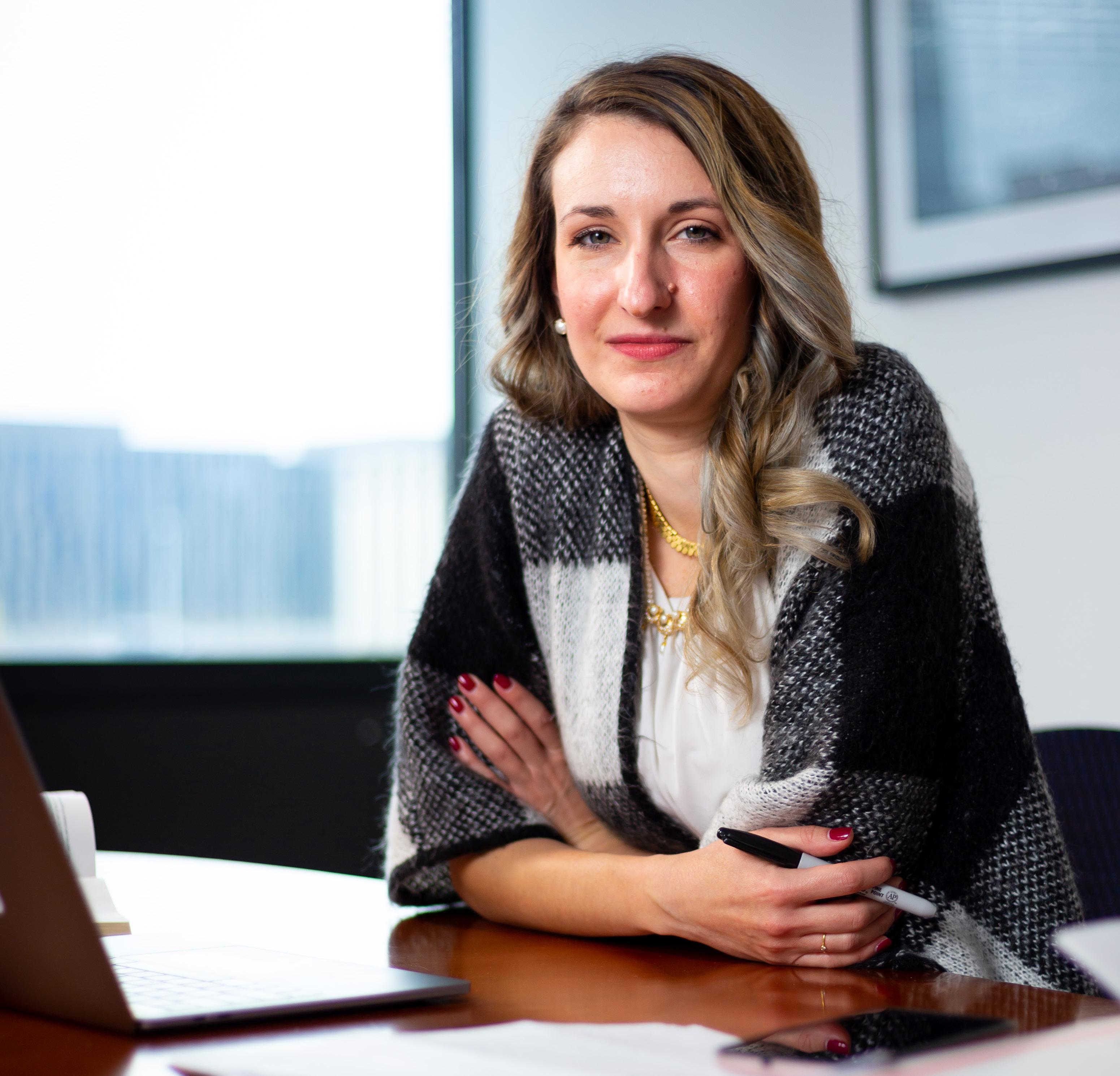
“She really puts her heart in this. That’s what really made me get engaged in immigration law; it’s really because of her and her dedication to it,” says Hussein Nofal ’22, who plans to pursue tax law but now says he’d like to do immigration work pro-bono. Nofal excelled in Carmona’s clinic, earning the college’s Gary Laser Professionalism Award, which goes to the best student out of all 11 clinics housed under Chicago-Kent’s C-K Law Group.
“The clinic is the most important aspect of immigration education at the school. I asked Victoria one time, ‘How do you do this? How do you take all these cases and not get depressed, hearing all those—and they’re horrible cases, horrible things have happened,” says Enrique Espinoza ’21, who worked at the clinic last year, and this year received a national Peggy Browning Fund fellowship to work at the Chicago offices of the National Legal Advocacy Network.
“She said, ‘Enrique, take it one day at a time. There’s only so much that you can do, and you have to take a step back, take some free time, and keep going.’
“It’s not going to change, it is what it is. That’s the nature of these cases.”
The first case Carmona brought into the clinic was an unflinching example. Like half of the 150 or so cases her clinic now handles, it dealt with an asylum application.
A family from the Democratic Republic of the Congo had shown up at the United States’ southern border. They were a married couple with two kids; the husband had spoken out about the government.
“A lot of these cases, they don’t just go after you, they go after your whole family,” Carmona says.
The man was tortured in front of his family; the woman was raped.
“We’re dealing with so many other issues—focusing on health and something to eat—that the legal side comes last,” Carmona says.
Says Espinoza of the cases he handled, “There’s the human aspect and the legal aspect. I can’t detach one from the other.”
Dr. Nora Rowley is a board certified emergency medicine doctor with decades of experience who works with the clinic to conduct forensic evaluations of torture survivors. Even in egregious cases, she says, such trauma needs to be well documented to be believed by the government. But it can wreak havoc on testimony.
“You can have the most vivid scarring, but if you get the wrong judge or government attorney and [the client] messes up and says one thing wrong one time, the assumption is they’re purposely lying and to never ever believe them,” says Rowley, who works out of the Heartland Alliance’s Marjorie Kovler Center in Chicago’s Rogers Park neighborhood.
Of Carmona, Rowley says, “She understands immigration law and the patterns that happen. And having a specialized clinic in an academic and teaching environment is really excellent.
“People go to law school with various goals in mind, and to have this exposure I hope will broaden their perspective, make them more compassionate, even if they’re not going to practice pro-bono work.”
“What I loved about it is the fact it’s connected to the law school,” agrees Angelica Barahona, who in 2019, when Carmona was first starting her clinic, was a case manager for World Relief Chicago.
Carmona approached several nonprofit advocacy organizations who needed help with their immigrant clients. World Relief was one of them.
“Wow. This is an answer to our prayers,” Barahona remembers thinking. “You’ll know that whoever is filling out [immigration documents] knows what’s expected of them. That’s not always the case; sometimes it’s an attorney who’s been through some training video.
“Chicago-Kent students don’t just do the minimum, they really make sure they understand what’s going on. That is not common.”
Back in 2019 it was Chicago-Kent students, more than anyone, who advocated for an immigration clinic, remembers then-Clinical Education Director Richard Gonzalez.
“They even did a petition a couple years back. They were upset. I think it was mostly because immigration is just so darned important lately,” Gonzalez says.
Chicago-Kent’s in-house firm, C-K Law Group had attempted to get such a clinic going twice before, but they’d only lasted a couple years. Gonzalez wanted one that would last.
Carmona had just been offered a partnership at one of Chicago’s largest immigration firms, Robert D. Ahlgren and Associates, where she had worked for five years.
But the chance to run her own clinic appealed greatly to her.
“I started out the first weeks saying, ‘Oh, God, hope this works!’ I had a few clients that ultimately followed,” she says.
And now…
“How do I get clients?” Carmona offers a rueful chuckle. “So many nonprofits that do pro-bono cases are just overwhelmed. We’ve been so busy because there’s such a demand for immigration lawyers.”
Carmona voices a common lament you’ll hear from most immigration attorneys: there’s not enough of them. Especially for asylum cases, whose clients typically don’t have a ton of money.
Since 2015 the number of cases pending in immigration court has skyrocketed from 400,000 to 1.2 million.
Part of the problem, Carmona says, is all that chaos. Over the past four years, there was so much of it, it had to be willful, she believes. And government prosecutors were not allowed to exercise discretion: rather than focus on egregious violations, all cases had to be tackled equally.
“We have a single mother with no criminal history, who has a U.S. citizen child with cerebral palsy. What is the purpose of focusing on her? This child’s going to end up in state custody, which—aside from the obvious humanitarian harm and lasting trauma a separation from a child and mother would cause— would end up financially costing the government even more,” Carmona says.
“It’s become so much more political than it needs to be,” Carmona says. “[The Trump administration] would just try to cut corners everywhere, making changes without notice or comment. And you have to understand, we’re dealing with numerous agencies: the Department of Justice, Homeland Security, Immigration and Customs Enforcement, immigration court systems….So if there’s a change it’s not just one change, it’s a change that ping-pongs and affects others.”
But helping students navigate all that “controlled chaos” is something she says she’ll always strive to do.
“The best way to learn law is to have someone there for you, to lead you through it. The law is a living, breathing thing. and it takes experience to understand. That’s what I’ll always be here for,” Carmona says. “I want to make sure the next generation is here to continue this work.”
Vivian Khalaf ’91 and Omar Abuzir ’99 have taken a lot of trips to Chicago’s O’Hare International Airport over the past several years. Not to get on a plane. Not to give someone a ride. But just to talk to people who technically, under United States immigration laws, weren’t on U.S. soil since they had not yet been “admitted”: people halted by President Donald Trump’s executive order blocking immigration from a slew of Muslim-majority countries.
When practicing immigration law, there were always hurdles. But there were hurdles, and then there were hurdles. “People who were not allowed entry were also not allowed legal representation. Because they technically weren’t lawfully on U.S. soil, they had no rights....Things aren’t as easy as they used to be, not that they ever were,” Khalaf says.
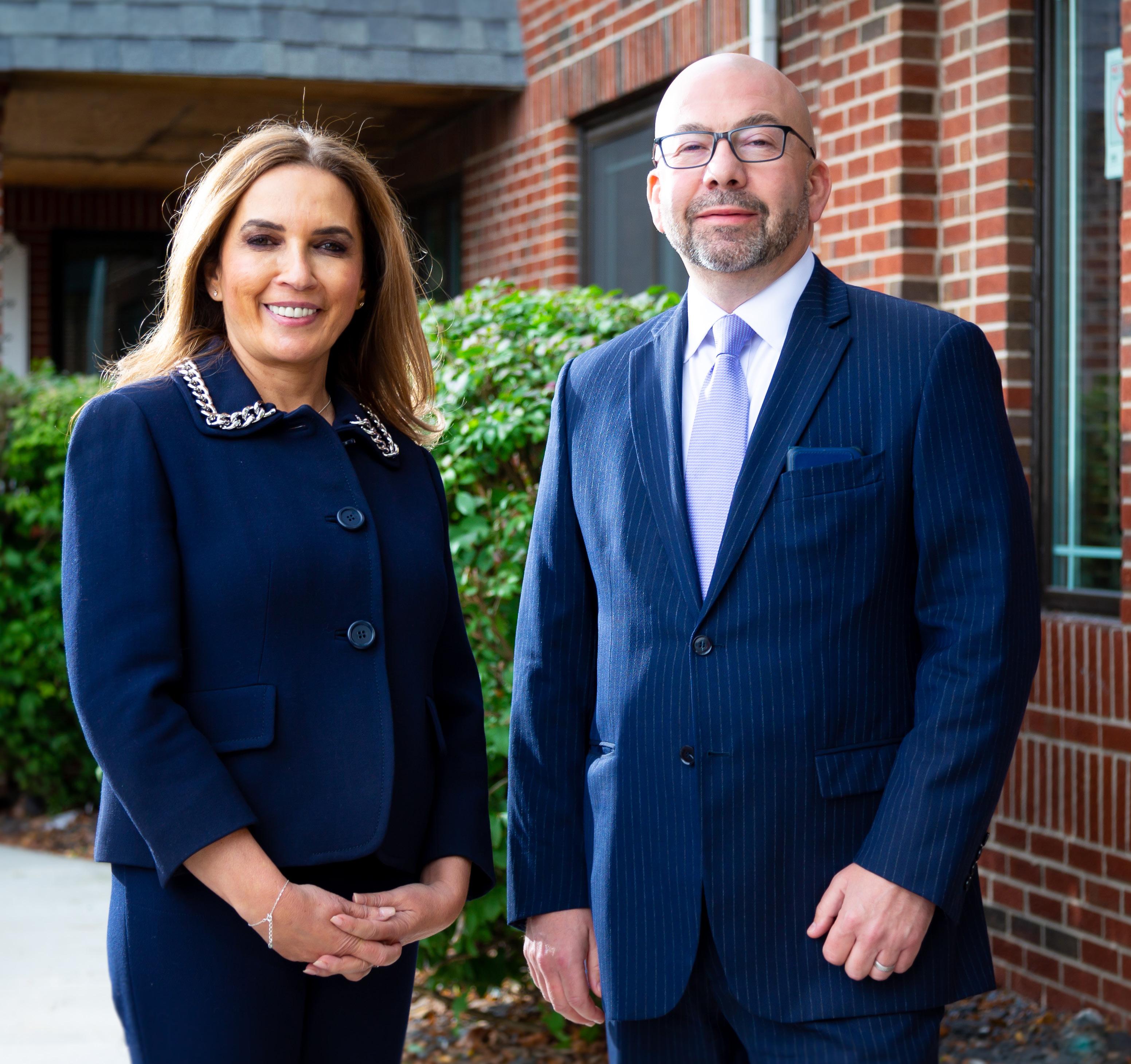
So the two talked to family members, and immigration officers who were kind enough to respond. Certainly, they weren’t the only ones: there was a large-scale pro-bono effort involving nearly two-dozen attorneys taking shifts at O’Hare’s terminal five.
But Khalaf and Abuzir have made a name for themselves in helping those from Arabic-speaking countries. Chicago has one of the largest Palestinian communities in the U.S., and Khalaf began her practice decades ago as a groundbreaker: a female, Muslim, Arabic speaker in a private, community-based practice. A rarity, if not a singularity.
“There were a handful of attorneys in general, all male, who had experience in the culture and were sensitive to the religion,” Khalaf says.
But as for Muslim women—community-based attorneys, as opposed to corporate attorneys—Khalaf says she was the only one she knew of when she started her firm in 1993, a few years after finishing law school. At Chicago-Kent College of Law, she remembers being one of only two female Arab Muslim students attending at the time.
Former client Tamara Haddad agrees: “There were no community-based Arab-American female attorneys who were experienced in immigration. I looked. She was the only one. She was the only Arab woman who had the ability to know what I was going through.
“We are not comfortable expressing our problems to men we are not related to,” Haddad explains. “It was very important for me to feel comfortable with my attorney. This woman is a blessing. A malak,” she adds, using the Arabic word for angel. Says Khalaf, “There’s a sense of comfort when a Muslim woman communicates with another Muslim woman who looks, speaks, and feels like her. I was the mirror image of many of these women who were heads of households, who were alone in the United States, whose husbands didn’t accompany them. So it was new, it was refreshing.”
Still, many clients, coming from a largely patriarchal community, questioned her out of habit.
“‘Are you really a lawyer, and can I see your degree? Maybe I can hire someone else to help you.’ I dealt with a lot of that,” Khalaf says. “The men had choices. If they didn’t like or weren’t comfortable with me, they could go elsewhere.
“Many of the women could not.”
Though she was born in Jerusalem, Khalaf’s family immigrated to the U.S. when she was six months old. She moved to Ramallah, Palestine, when she was 12 after her father got a job working for an oil company in Abu Dhabi.
Khalaf and Abuzir met through family: Khalaf went to a high school in Ramallah with Abuzir’s sister.
Abuzir, on the other hand, was born in Chicago; his father, who is from Palestine, owned a convenience store on the South Side. Neither his father nor his mother, who is from Colombia, had high school degrees, so they relied on Abuzir and his brother to review contracts and documents, even at an early age.
“I saw that, in helping my father and many of his friends in similar situations, there was a need for representation,” Abuzir says. Abuzir clerked for Khalaf while attending Chicago-Kent, then started as an associate after he graduated in 1999.
Abuzir, who works out of the firm’s downtown Chicago office, believes the emotional reward he gets from his job is unlike anything he’d get from another field.
“Really, you see the deep impact it has on individuals, winning
benefits or getting residency, how it completely changes their futures,” Abuzir says. “The feeling I get whenever someone wins a case and the joy they have is hard to describe.”
Abuzir points to a recent case, that of 43-year-old Haitham Hamad Awad Amli, who had been stranded on docket after docket—delay after delay—for 10 years.
A Palestinian who had applied for asylum in 2011, he continued to await resolution of his case for years, with judges retiring, their loads transfered.
“Every day before we had a court date, I went to buy a suit. I swear I have like 10 or 12 suits,” says Amli. “Every time, just one day before the court hearing, sometimes hours, they delayed the date for a year.”
And with his case pending, there was no way for Amli to return to Palestine to see his family, or bring them to the U.S.
“Ten years. My daughter was four when I left. She’s 14 now,” Amli says. Within the past year, one of his sons was hit and killed by a car. Every day, morning and night, he’d talk to his family on the WhatsApp messenger and share what he could.
Abuzir took the case in 2017. Finally, in 2019, Amli received a hearing and his asylum was granted. Last August, his family— their visas finally approved—was able to join him.
“Omar is honest,” Amli says, a compliment he doesn’t offer lightly after his experiences. “When we won I wanted to give him a gift, some money [beyond the attorney fees]. He wouldn’t take it; he put it back in my hand and said, ‘That’s not mine; that’s yours, for you, your wife, your kids. Just save it, keep it.’”
“Money’s money,” Abuzir says.
“But no amount of money in the world can replace reunifying a family,” agrees Khalaf.
On the other hand, if cases go awry, “I still carry this sense of guilt, that I was the reason they weren’t able to stay in the U.S. I haven’t been able to separate myself, Vivian the person, from Vivian the attorney,” she adds.
“I still go home and stay awake. Thinking about these cases.”
The two have tackled much larger cases. Back in 2020, when U.S. citizens were denied their federal stimulus checks for filing a joint tax return with a spouse who only had an Individual Taxpayer Identification number (as opposed to a Social Security number), the pair, along with two other attorneys, brought a class-action suit against the government in federal district court.
“It seemed like it was a clear violation of due process,” Khalaf says. “Eventually it became moot; we believe because of these lawsuits, there was enough pressure put on our congressional representatives to do the right thing.”
The second round of stimulus checks went out to such families, who also received the first payments retroactively.
More recently, the pair remains involved in a joint effort by the Arab American Bar Association and the South Asian Bar Association, who have teamed up to get families out of Afghanistan.
“Prior to this, I was never involved in such an effort. It didn’t happen during the war in Iraq,” Khalaf says. “Social media has affected everything from A to Z insofar as getting people involved in such issues.”
The firm has since grown significantly since it began, with offices in Palos Hills, Illinois, downtown Chicago, and Ramallah. But back when Khalaf started out, she sometimes didn’t get paid, or had to barter goods for services. One client paid her with a Persian rug.
“Because they couldn’t afford it. But that was OK. If that happened at a firm downtown, they’d show them the door and escort them to the elevator,” she says.
“But I saw the need. I filled a void.”
When I was a summer associate in New York in the 1990s, the highlight of the firm’s social activities was a boat trip along the Hudson River. The trip culminated at the Statue of Liberty at twilight while speakers blasted Neil Diamond’s “America.” I wept imagining my grandparents coming through Ellis Island in the 1920s fleeing anti-Semitism in Russia. I remembered those in my family who did not immigrate and were ultimately killed by Nazi forces. Suddenly, the music stopped and a recorded voice recited Emma Lazarus’s poem—“Mother of exiles…Give me your tired…your poor.” In my family, that poem was our own pledge of allegiance. This is one side of the American coin—America as a land of immigrants, America ready to give refuge. This understanding of what the United States is has a long history. But equally strong is a history of xenophobia, in which the American gates to immigration were closed to many, often based on nationality and race.
Today’s most recent immigration crisis involves the closing of the southern land borders, including for people seeking asylum. Our immigration policy has long been responsible for the separation of families and even the death of those seeking to migrate to the U.S. At this moment, we must once again determine whether we are the country of the ideas that Emma Lazarus represents or a country of eugenicist immigration.
Just some examples of racist policies and practices include the 1882 Chinese Exclusion Act, which prohibited the immigration of Chinese laborers. Following World War I, Congress passed the Immigration Act of 1917, which barred multiple categories of people, including those from a vast number of Asian countries, from immigrating. In 1921 Congress enacted a new law that established a quota system, based upon nationality.
In a riot of xenophobia, Congress next passed the Immigration Act of 1924, which further restricted the number of non-Northern European immigrants. For many “nationalities,” such as Armenians, visas were limited to approximately 100 a year, even for refugees of the Armenian genocide. Under the same act, Jewish people trying to escape Hitler’s Europe in the 1930s were prohibited from migrating to the U.S. This was not the first or the last time that the restrictive immigration laws in the U.S. literally sent people to their deaths.
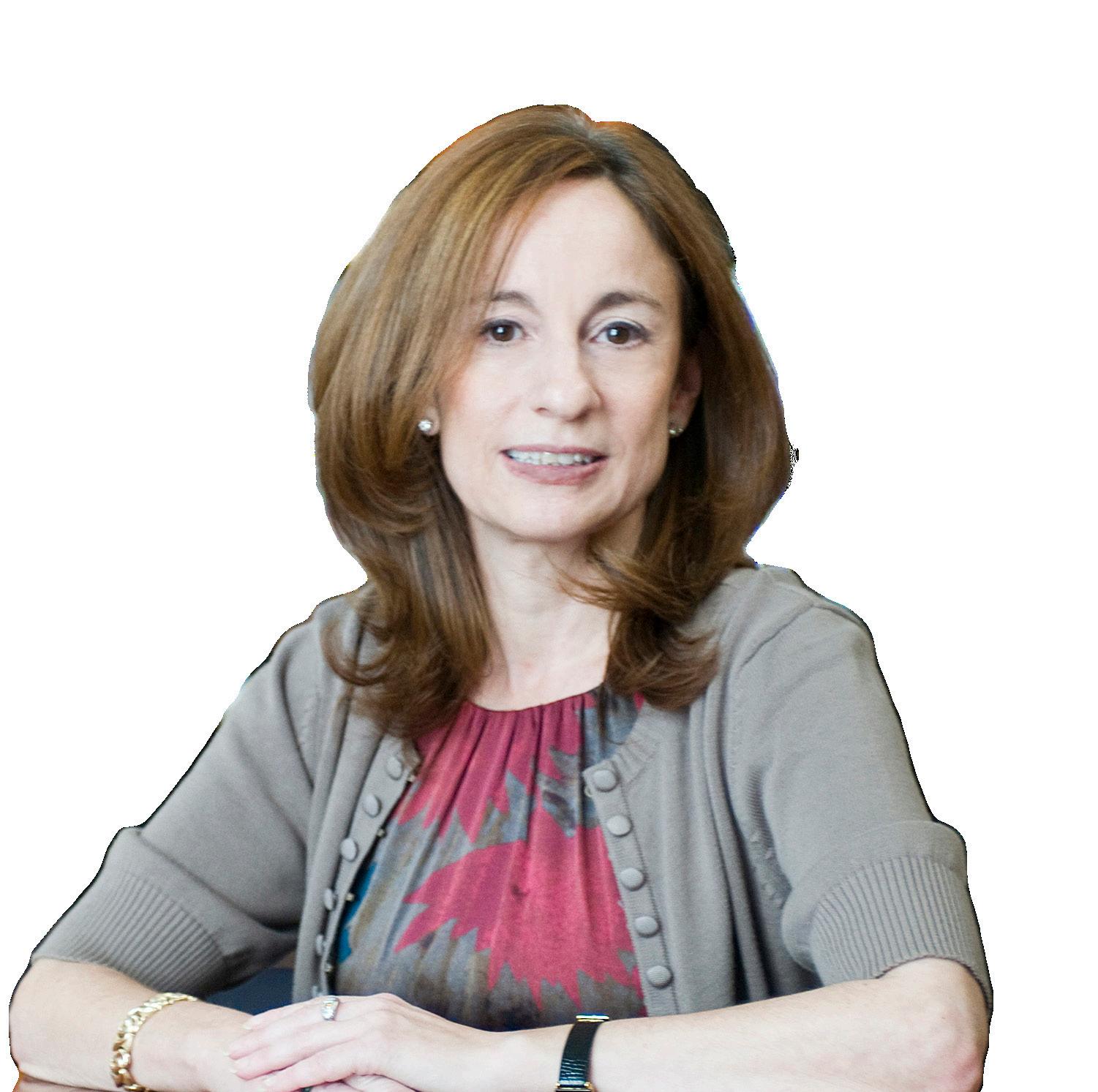
The Trump administration attempted to return the U.S. to this xenophobic and anti-immigrant past. One only need think about the Muslim ban, the separation of children from parents at the southern border, the caging of migrant children, and the remain-in-Mexico policy. Although Trump may be gone, many of his policies remain, as does a gutted and dysfunctional immigration system.
One example: On March 20, 2020, the Department of Health and Human Services issued an order that allowed for the immediate expulsion of certain migrants entering the U.S. through land borders.
This was done as a so-called means of preventing the spread of COVID-19. Many seeking to immigrate by land from Mexico and Central America were taken into custody by U.S. Border Control agents and simply dumped in Mexico. Often, migrants are not given the opportunity to ask for asylum. Many of those attempting to seek asylum have been women and children traumatized by sexual violence. Well-researched reports say that those expelled to Mexico have no way of meeting their daily needs to survive. Moreover, asylum seekers who live in fear for their lives have been murdered, raped, kidnapped, or disappeared. U.S. law and international treaties, to which the U.S. is a party, provide migrants with the specific right to request asylum. The U.S. is prohibited from returning asylum seekers who face threats and danger in their home country without affording them the right to apply for asylum and conducting a full and fair examination of their claims.
These laws were enacted to prevent a return to our country’s pre-WWII past. Even though a vast array of civil rights organizations have expressed outrage, and a court recently ruled that the order was illegal, the Biden administration has yet to reverse these policies. Biden needs to commit his administration to creating a humanitarian and lawful asylum process. In doing so, we carry on the best parts of our history, while refusing to
Dawn B. Schulz, McLean, Va., was honored at the May 2021 Florida Bar Annual Convention for her 50-plus years of dedication to the practice of law.
Stephen B. Ruben, San Francisco, joined ADR Services, Inc., in July 2021 and serves as a family law mediator, arbitrator, and private judge.
Paul L. Peterson, Mount Prospect, Ill., was elected as a fellow of the American College of Real Estate Lawyers in April 2021. Peterson is vice president and senior staff underwriter at Fidelity National Family of Title Insurance Companies.
Hon. Pamela Loza, Mount Prospect, Ill., a Cook County circuit court judge for the domestic relations division, received a 2020 Chicago-Kent College of Law Professional Achievement Alumni Award on April 22, 2021.
Jack Carriglio, Glenview, Ill., was named to the 2022 edition of the Best Lawyers in America list. He is a member at Cozen O’Connor and represents
clients in commercial disputes, including the prosecution and defense of cases relating to contracts, business torts, bankruptcy, professional disciplinary matters, and real estate litigation.
Eileen M. Letts, Flossmoor, Ill., was named a Second Annual Salute! Top 50 Women in Law Award honoree by Chicago Daily Law Bulletin and Chicago Lawyer Magazine for 2021. Letts is the chief administrative partner at Zuber Lawler LLP.
Michael K. Demetrio, Chicago, was elected to serve on the board of directors of the elite International Academy of Trial Lawyers in April. The board is a highly selective group of the world’s 500 most accomplished lawyers from both sides of the bar. He is a founding partner at Corboy & Demetrio.
Molly K. Ryan, River Forest, Ill., was recognized as one of Crain’s Chicago Business’ Notable General Counsels for 2021. Ryan is general counsel at Berkshire Hathaway HomeServices, Koenig Rubloff Realty Group.
Bill Gallagher, Cincinnati, was named Lawyer of the Year by the Ohio Association of Criminal Defense Lawyers, and was honored on October 8, 2021. He is a partner at Arenstein & Gallagher.
Amy Campanelli, La Grange, Ill., former Cook County Public Defender, joined Lawndale Christian Legal Center as vice president of restorative justice. Tim Cavanagh, Chicago, was named a Best Lawyers 2022 Plaintiffs’ Personal Injury Litigation Lawyer of the Year in Chicago. Cavanagh is a nationally recognized personal injury attorney and founding partner at Cavanagh Law Group.
Michael Renzi, Joliet, Ill., was appointed as the Will County Public Defender in February 2021. He is a criminal defense lawyer with more than 31 years of experience.
Vivian R. Khalaf, Burr Ridge, Ill., was named a Second Annual Salute! Top 50 Women in Law Award honoree by Chicago Daily Law Bulletin and Chicago Lawyer Magazine for 2021. Khalaf is the founding partner at Khalaf & Abuzir LLC in Palos Hills and its affiliate office, Agility Services, in Ramallah, Palestine.
Gerise M. LaSpisa, Markesan, Wis., was appointed as Green Lake County district attorney in April 2021. LaSpisa brings experience prosecuting crimes and has also served as executive director of a children’s charity, working to enrich the lives of children with physical disabilities.
Vasudevan Rajaram, Oak Brook, Ill., is now retired and enjoys interactions with Illinois Tech’s Ed Kaplan Family Institute for Innovation and Tech Entrepreneurship and the International Alumni Committee, and is writing a new book titled 9 Steps to Tranquility.
Howard E. Rosenblum, Deerfield, Ill., joined McCormack Schreiber Legal Search as managing director. He practiced for the last 17 years in-house at Walgreens, where he served as both senior litigation counsel and director and managing counsel.
Mary A. Korenic, Lynwood, Ill., joined the American Red Cross’ Board of Directors in August 2021. Korenic is chief executive officer of The Chicago Trust Company at Wintrust Wealth Management.
Rachel B. Cowen, Chicago, was named a Second Annual Salute! Top 50 Women in Law Award honoree by Chicago Daily Law Bulletin and Chicago Lawyer Magazine for 2021. Cowen is a partner and employment litigator at McDermott Will & Emery’s labor and employment practice group.
Sheryl J. Halpern, Deerfield, Ill., was elected to the management committee at Much Shelist, P.C., and was named chair of the labor and employment group in July 2021.
Betty Y. Jang, Chicago, was nominated by President Joe Biden to be a member of the Board of Trustees of the Harry S. Truman Scholarship Foundation. Jang is an executive with more than 25 years of legal, compliance, and leadership experience, and most recently was an executive at publicly traded companies.
Mark A. Nieds, Chicago, was honored in the September 2021 issue of Naples Illustrated magazine as a Top Lawyer for Intellectual Property Law. Nieds was also a panelist speaker at an Above Board Chamber in Fort Myers, Florida, in August 2021, where he discussed data and privacy for business
owners. He is an intellectual property attorney at Henderson, Franklin, Starnes & Holt, P.A. and chair of the intellectual property practice group.
Xavier Pillai, Schaumburg, Ill., was elected as an American Chemical Society fellow in August 2021. Pillai is a shareholder at Leydig, Voit & Mayer, Ltd. and specializes in intellectual property law, particularly in patent law relating to chemicals, pharmaceuticals, and biotechnology.
Larry Rogers, Chicago, received a 2020 Chicago-Kent College of Law Professional Achievement Alumni Award on April 22, 2021. As an equity partner at Power Rogers LLP, Rogers has successfully obtained numerous multimillion-dollar settlements and verdicts in a variety of serious personal injury and wrongful death matters.
Nancy F. Ardell, Tampa, Fla., joined Florida Cancer Specialists & Research Institute as chief legal officer in April.
Bob A. Surrette, Downers Grove, Ill., received a Professional Achievement Award at the 2021 Illinois Institute of Technology Alumni Awards. He is president and a shareholder of McAndrews, Held & Malloy. His practice is focused on intellectual property dispute resolution and technology-related disputes.
Megan B. Poetzel, Chicago, was named a Second Annual Salute! Top 50 Women in Law Award honoree by Chicago Daily Law Bulletin and Chicago Lawyer Magazine for 2021. Poetzel is a partner at Jenner & Block LLP and co-chair of the complex commercial litigation practice group.
Jason M. Rosenthal, Evanston, Ill., was named vice chair of the litigation and dispute resolution group at Much Shelist, P.C.
in July 2021. He is a principal with significant experience representing corporate policyholders in a wide range of insurance coverage disputes.
Ray Schrock, Rye, N.Y., received a 2020 Chicago-Kent College of Law Professional Achievement Alumni Award on April 22, 2021. Schrock is a partner at Weil, Gotshal & Manges LLP and is consistently recognized as one of the country’s leading restructuring lawyers. He was also inducted by The American College of Bankruptcy as a fellow in March 2021.
Jennifer L. Ashley, Libertyville, Ill., was named to the 2022 Edition of the Best Lawyers in America list. Ashley is a partner at Salvi, Schostok & Pritchard, P.C., where she focuses her practice on personal injury, medical malpractice, and products liability.
Pranav J. Shah, Middleton, Wis., was elected as a new board member to the Association of Corporate Counsel-Wisconsin in June 2021. Shah is general counsel at WEA Member Benefits, a Madison, Wisconsin-based financial services organization.
Jason J. Friedl, Chicago, secured an $880,000 and a $1.2 million settlement in 2021 with colleague and alumnus Martin Gould ’14 for victims of abuse. He is a senior attorney at Romanucci & Blandin, LLC.
Paul A. Miller, Highland Park, Ill., received a 2020 Chicago-Kent College of Law Distinguished Service Alumni Award on April 22, 2021. Miller is the chief legal officer and corporate secretary of EquiTrust, where he oversees legal affairs, compliance, regulatory matters, and information technology.
Yvette C. Loizon, Chicago, joined Clifford Law Offices as a partner. Loizon was also named to the 2021 Rising Stars in Law list by Crain’s Chicago Business.
Gina M. Arquilla DeBoni, Glenview, Ill., was sworn in as a village trustee in Glenview. The ceremony took place on May 4, 2021, during the Glenview Board of Trustees meeting. She is managing partner at Romanucci & Blandin.
Michael Delrahim, Highland Park, Ill., received a 2020 Chicago-Kent College of Law Distinguished Service Alumni Award on April 22, 2021. Delrahim is managing partner of Brown, Udell, Pomerantz & Delrahim Ltd., where he counsels institutions, opportunity funds, sponsors, and investment managers, and serves in-house as counsel to nationally operating real-estate companies.
Barbara N. Flores, Chicago, was honored with a 2021 Carole K. Bellows Women of Influence Award by the Illinois State Bar Association. Flores is a commissioner at the Illinois State Workers’ Compensation Commission.
Jorge T. Mihalopoulos, Glencoe, Ill., was appointed to serve as chair of the Chicago Bar Association’s Environmental Law Committee after a year of serving as the chair of the Illinois Bar Association’s Environmental Section Council.
Lilianna M. Kalin, Woodridge, Ill., was recognized as one of Crain’s Chicago Business’ Notable General Counsels for 2021. Kalin is general counsel at the College of DuPage.
Ayesha Ahmed, Glenview, Ill., was recognized as one of Crain’s Chicago Business’ Notable General Counsels for 2021. Ahmed is general counsel and vice president of human resources at Nexus Pharmaceuticals.
Jeremy Edelson, Glencoe, Ill., was named to the 2021 40 Under Forty Attorneys to Watch list by Law Bulletin Media Edelson is a partner at Laner Muchin, Ltd.
Gerald J. Bekkerman, Chicago, received an Outstanding Young Alumnus Award at the 2021 Illinois Institute of Technology Alumni Awards. He is a trial lawyer at Taxman, Pollock, Murray & Bekkerman.
Eric Y. Choi, Glenview, Ill., was named to the 2021 Rising Stars in Law list by Crain’s Chicago Business. Choi is a partner at Neal, Gerber & Eisenberg LLP.
Amy M. Gibson, Northbrook, Ill., was named to the 2021 40 Under Forty Attorneys to Watch list by Law Bulletin Media. Gibson is a member at Aronberg Goldgehn Davis & Garmisa and co-chair of the commercial litigation practice group.
Michael W. Debre, Western Springs, Ill., was named to the 2021 Rising Stars in Law list by Crain’s Chicago Business. Debre is a principal of Chuhak & Tecson, P.C.
Nicole L. Little, Chicago, was named a Second Annual Salute! Top 50 Women in Law Award honoree by Chicago Daily Law Bulletin and Chicago Lawyer Magazine for 2021. Little is a partner and litigator at Fitch, Even, Tabin & Flannery.
Christina E. Lutz, Chicago, was named to the 2021 Rising Stars in Law list by Crain’s Chicago Business. Lutz is a partner at Levenfeld Pearlstein.
Farhang Amini, Houston, was promoted to of counsel for Winstead PC in April. Amini is a member of the intellectual property practice group in Houston. His practice is focused on patent prosecution, as well as a spectrum of matters involving intellectual property licensing, litigation, and transactions.
Blake W. Jackson, San Jose, Calif., was elevated to partner in the Intellectual Property and Technology offices at DLA Piper in Silicon Valley.
Robert H. Patillo II, Atlanta, was sworn in to serve on the Board of Directors of the National Association of Criminal Defense Lawyers at the association’s annual meeting in July 2021. Patillo is the executive director of the Rainbow PUSH Coalition and is also a radio talk show host.
David Doyle, La Grange, Ill., was named to the 2022 edition of the Best Lawyers in America Ones to Watch list. Doyle is a member at Cozen O’Connor, and his practice focuses on creditor’s rights, insolvency matters, and commercial litigation.
Brian O. Watson, Chicago, was named to the 2021 Rising Stars in Law list by Crain’s Chicago Business. Watson is a partner at Riley Safer Holmes & Cancila LLP.
Jesse A. Footlik, Chicago, received a 2020 Chicago-Kent College of Law Outstanding Young Alumnus Award in April 2021. Footlik is a partner with Peck Ritchey and has successfully litigated cases on both the trial and appellate court levels and has significant experience guiding clients through the probate process.
Courtney L. Nichols, Clarkston, Mich., was named to the 2021 Go To Lawyers in employment law
list by Michigan Lawyers Weekly in April. Nichols is a shareholder of Plunkett Cooney and is a co-leader of the labor and employment law practice group.
Kathleen Opal, Chicago, was named to the 2021 40 Under Forty Attorneys to Watch list by Law Bulletin Media. Opal is an associate at Dussias Wittenberg Koenigsberger LLP.
Julie A. Levinson Pustilnik, Chicago, received a 2020 Chicago-Kent College of Law Outstanding Young Alumna Award in April 2021. She was also named to the 2021 40 Under Forty Attorneys to Watch list by Law Bulletin Media. She is a partner at Taxman, Pollock, Murray & Bekkerman, LLC.
Mark A. Silverman, Northbrook, Ill., was named to the 2021 Rising Stars in Law list by Crain’s Chicago Business. He is a member at Dykema in the Chicago office, where he is a co-team leader of the commercial mortgage-backed securities special servicer group and chair of the nationwide technology advisory committee.
Daniel S. Alexander, Shorewood, Ill., was named to the 2022 Edition of Best Lawyers in America, Ones to Watch list. Alexander is a director and civil defense litigator at Maron Marvel Bradley Anderson & Tardy LLC.
Katherine L. Goyert, Chicago, joined Rush University Medical Center in July 2021 as senior associate general counsel, employment.
Bruno R. Marasso, Chicago, was installed as first vice president of the Justinian Society of Lawyers. In May 2021 Marasso represented a plaintiff in a $3.8 million settlement who was injured in a car accident where the at-fault driver had a dangerous driving history. He is a senior associate attorney at Romanucci & Blandin in Chicago.
Max Barack, Chicago, was named to the 2022 Edition of Best Lawyers in America, Ones to Watch list for labor and employment law and employee-side representation. Barack is an associate with Favaro & Gorman, Ltd.
Dunstan H. Barnes, Chicago, was named to the 2021 40 Under Forty Attorneys to Watch list by Law Bulletin Media. Barnes is a partner at McAndrews and practices in all areas of intellectual property law, with a special focus on protecting and analyzing design rights.
Paulina Garga-Chmiel, Chicago, was elevated to principal at Chuhak &Tecson, P.C., and was included in Crain’s Chicago Business’ Rising Stars in Law for 2021.
Luke Harriman, Elmhurst, Ill., was named vice chair of the wealth transfer and succession planning group at Much Shelist, P.C. in July 2021. Harriman advises individuals and families on estate planning matters, helping clients protect and provide for their loved ones after they pass away.
Tara M. Stringfellow, Memphis, Tenn., will have her debut novel, Memphis, published on April 1, 2022, by Dial Press, an imprint of Penguin Random House. Memphis is a multigenerational bildungsroman based on Stringfellow’s rich civil rights history.
Daisy Ayllon, Chicago, was named to the 2021 40 Under Forty Attorneys to Watch list by Law Bulletin Media. Ayllon is an associate at Levin & Perconti.
Jamie B. Barwin, Wolverine Lake, Mich., joined Fox O’Neill Shannon S.C. as an associate in July 2021. Barwin provides taxation legal services, estate planning, and administration groups.
Brigid Fox, Royal Oak, Mich., joined Howard & Howard in September 2021 as a trust and estates attorney. Fox was also named to the 2022 edition of Best Lawyers in America, Ones to Watch list for trusts and estates.
Martin D. Gould, Chicago, received the Milton Gray Award from the Chicago Bar Association and was sworn in as second vice president of the Chicago Bar Association’s Young Lawyers Section in June 2021. Gould also secured an $880,000 and a $1.2 million settlement in 2021 with colleague and alumnus Jason Friedl ’00 for victims of abuse.
Rob L. Kohen, Chicago, was named to the 2021 40 Under Forty Attorneys to Watch list by Law Bulletin Media, and was also named to the 2022 Edition of Best Lawyers in America, Ones to Watch list. Kohen is an attorney at the Illinois law firm of Salvi, Schostok & Pritchard where he focuses his practice on personal injury, medical malpractice, and products liability.
Alexander I. Passo, Ogden Dunes, Ind., was elevated to partner at Latimer LeVay Fyock LLC in May. Concentrating his practice in complex commercial litigation, Passo represents clients in matters involving internal business disputes, breach of contract, fraud, emergency business litigation, unfair competition, and professional negligence.
Elizabeth Butler, Chicago, was named the 2021 Emerging Leader of the Year at the Illinois Real Estate Journal Awards and named to the 2021 40 Under Forty Attorneys to Watch list by Law Bulletin Media.
Danielle Harris, Chicago, was named to the 2022 edition of the Best Lawyers in America Ones to Watch list. Harris is an associate at Cozen O’Connor and has experience representing a wide range of clients, from higher education institutions to small businesses in employment litigation matters.
Haley R. Jenkins, Chicago, was elevated to Partner at Stephan Zouras, LLP. Jenkins represents people in a broad spectrum of legal disputes ranging from unpaid wages and employee misclassification, to antitrust, consumer fraud, whistleblower actions, and qui tam cases.
Kenneth A. Matuszewski, Westchester, Ill., was named chair of the IP section for the Illinois State Bar Association, and was named to the 2021 On the Rise Top 40 Young Lawyers by the American Bar Association. Matuszewski is an IP associate at Goldberg Segalla.
Nicolette A. Ward, Chicago, was part of a team that received the prestigious Leonard Weinglass in Defense of Civil Liberties Award in July 2021 from the civil rights section of the American Association of Justice. Ward is an associate at Romanucci & Blandin, LLC., and has been a part of the civil litigation team that has represented the family of George Floyd since May 2020. The award recognizes the contributions of the Floyd family and legal team to civil rights in America.
Kelley C. Flanagan, Chicago, was mentioned in a June 2021 USA Today article “The Top 15 Attorneys Disrupting the Legal Industry to Make It Better.” Flanagan is an attorney and tax consultant at Flanagan Bilton LLC.
Stephanie A. Langley, Grayslake, Ill., was elevated to global lateral conflicts attorney at Dentons in July 2021.
Alanna Elinoff, Chicago, joined Perkins Coie LLP as an associate. Elinoff manages regulatory compliance projects for companies of varying sizes and industries, including automotive, ad tech, and retail.
Jonathan S. Safron, Chicago, won the Chicago Bar Association’s Flash Fiction competition in August 2021. His story, “Zoom and the Bigger Picture,” was featured in the July/August edition of the Chicago Bar Association Record . Safron is a construction/mechanics lien litigation attorney at Carlson Dash.
Johnny D. Derogene, Washington, D.C., had his article “Does the Burden of Proof in ERISA Section 510 and ADEA Cases Need Recalibration?” published in the ABA Journal of Labor & Employment Law in its January 28, 2021, publication. Derogene is an attorney advisor for the Federal Labor Relations Authority.
John R. Etchingham, Chicago, joined Sidley Austin LLP as an associate.
August M. Hieber, Chicago, was named to the 2021 Top 40 Young Lawyers On the Rise list by the American Bar Association. Hieber is a staff attorney for the Center for Disability and Elder Law.
Michael J. Schostok, Chicago, was named to the 2022 Edition of Best Lawyers in America, Ones to Watch list. Schostok is an associate at Salvi, Schostok & Pritchard, P.C., and concentrates his legal practice on cases involving catastrophic personal injury, medical malpractice, and products liability.
Touline K. El-shafei, Naperville, Ill., joined Honigman LLP as an associate. El - shafei focuses her practice on private equity, mergers and acquisitions, health care transactions, and general corporate matters.
Andrea Mireles, Cicero, Ill., joined Valentine Austriaco & Bueschel, P.C. as an associate in May 2021. In August 2021 Mireles was asked to join the Board of Directors of Corazón Community Services. Corazón Community Services is an organization working to improve the quality of life for children, youth, and families through holistic social services offered in a culturally sensitive environment.
Bridget M. Murphy, Chicago, joined Lewis Brisbois Bisgaard & Smith LLP as an associate and is a member of the general liability practice.
Herbert B. Keil ’53
Richard K. Hoffman ’53
Robert T. Ruff ’57
William J. Schaefle ’63
Dewey R. Jones ’65
Hermann M. Schamberger ’67
Frank J. Doti ’69
Jerome J. Lutz ’69
Michael J. Femal ’73
Michael D. Gertner ’73
Edward R. Rabe ’73
John J. Cronin ’75
Jay E. Degroot ’86
John W. Guzzardo ’04
Kristin Rylko ’05
Emmett M. Shaughnessy ’14
During the COVID-19 pandemic, many students and their families are experiencing income insecurity and relying on financial aid more than ever. Chicago-Kent College of Law provides scholarships to help lessen financial need and to reward academic excellence. Your gift to the Chicago-Kent Alumni Fund will provide relief to those who are struggling with unexpected financial burdens as well as ensure our school’s focus on future leaders.
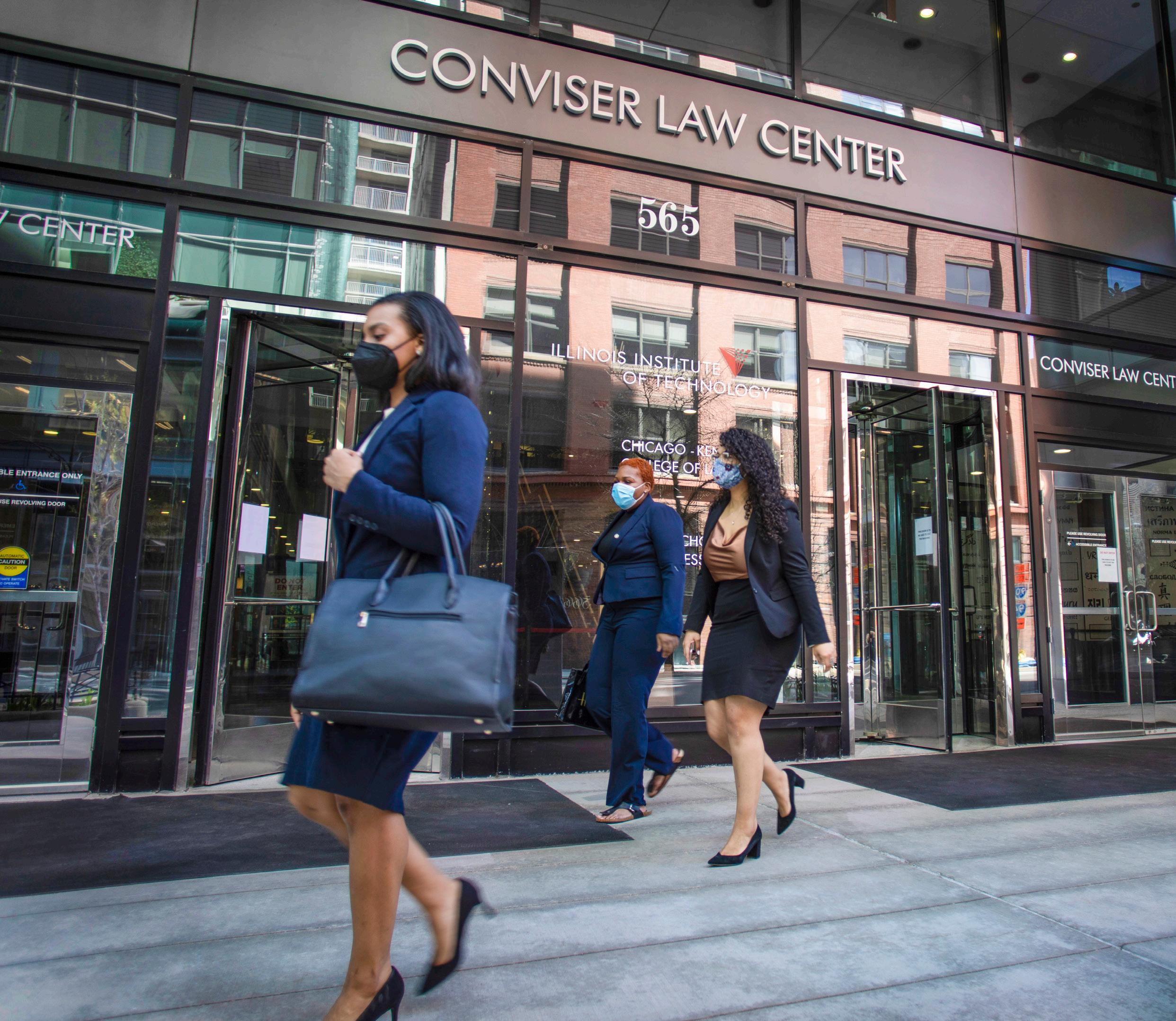
Make a gift today.
alumni.kentlaw.iit.edu/give